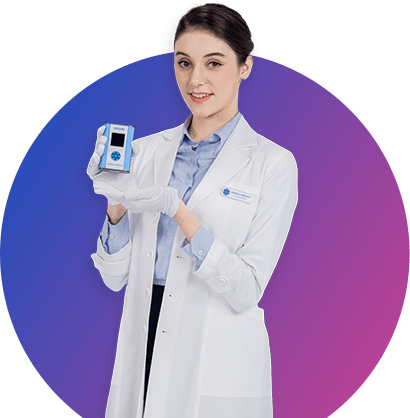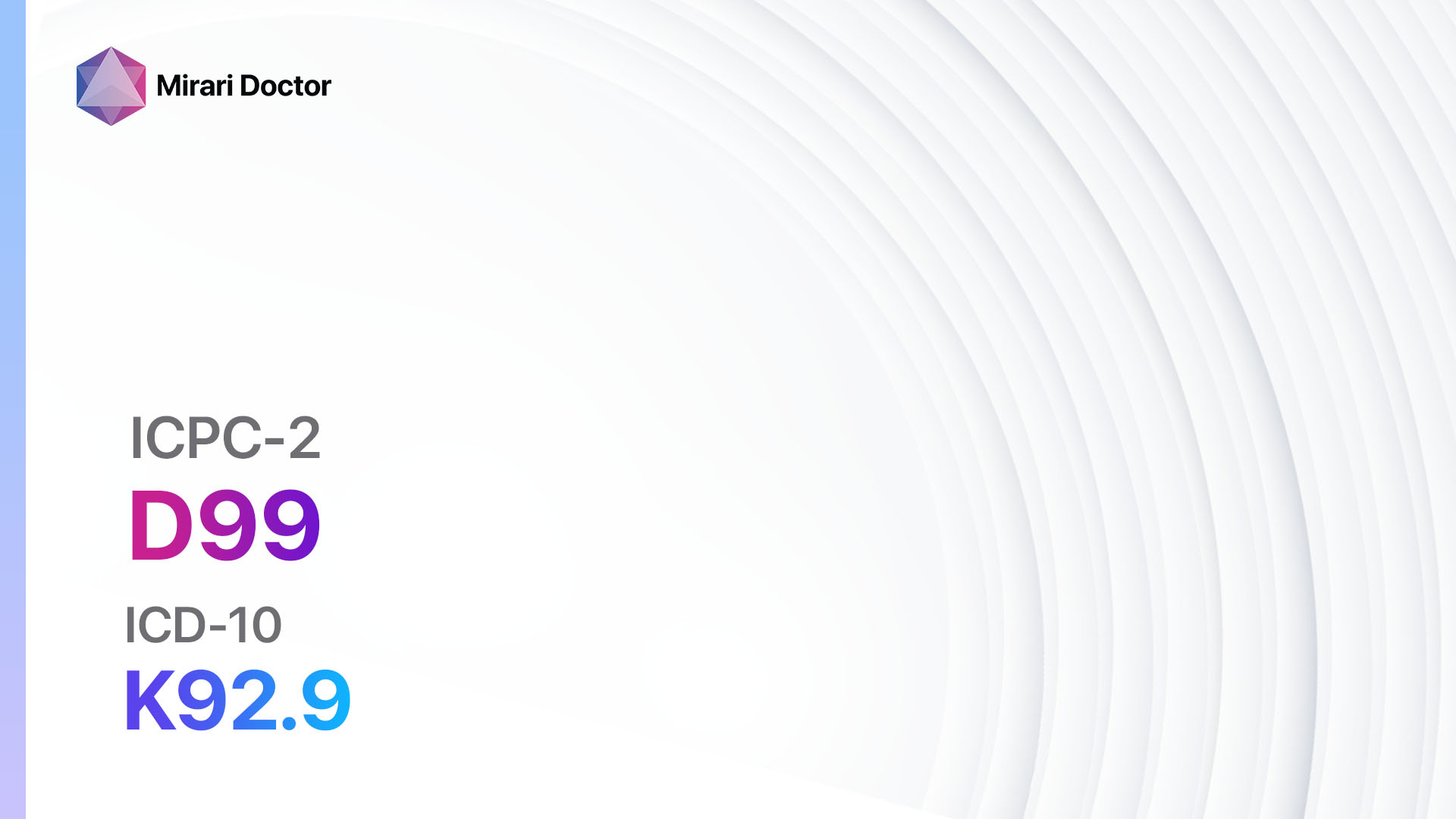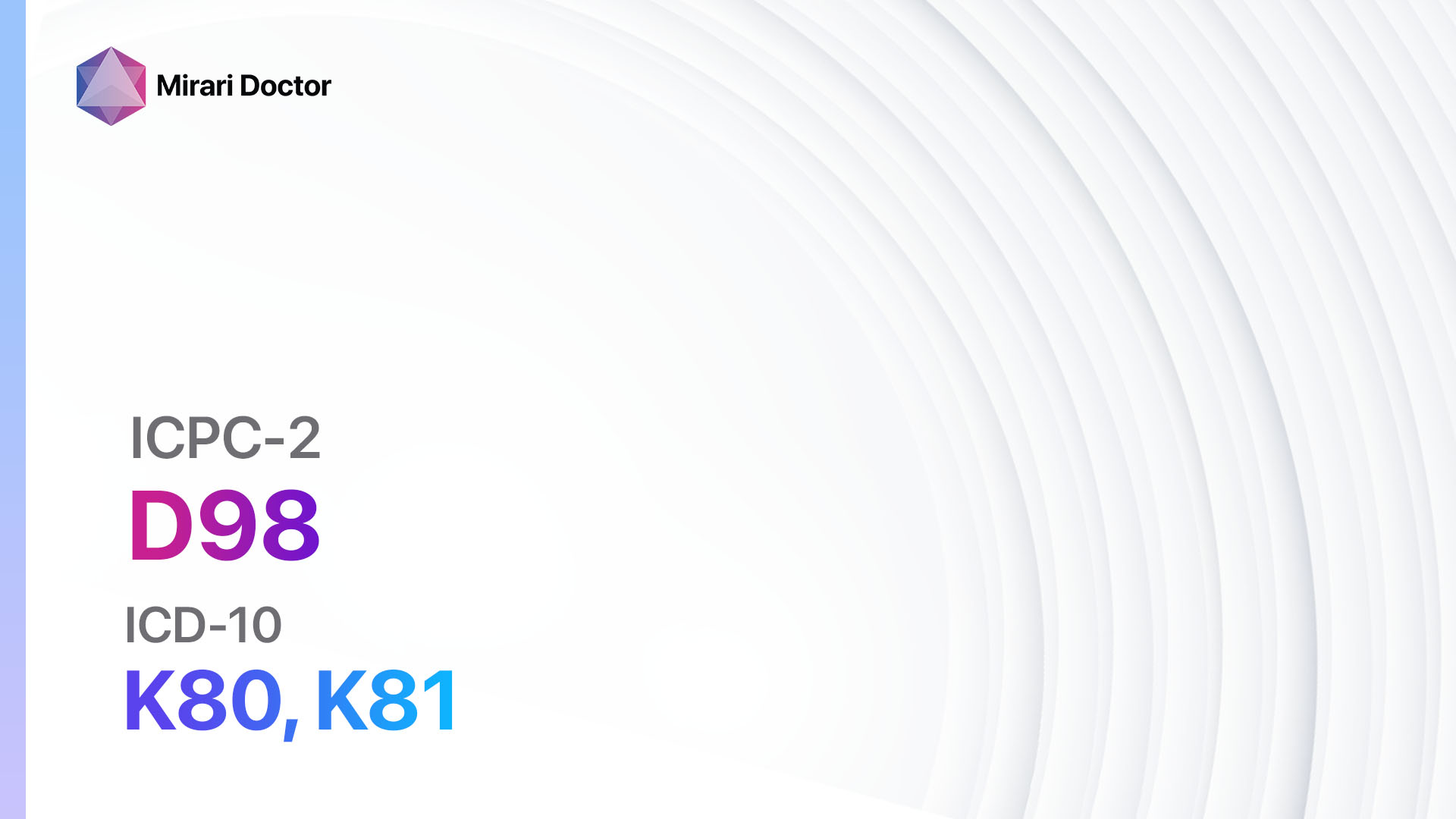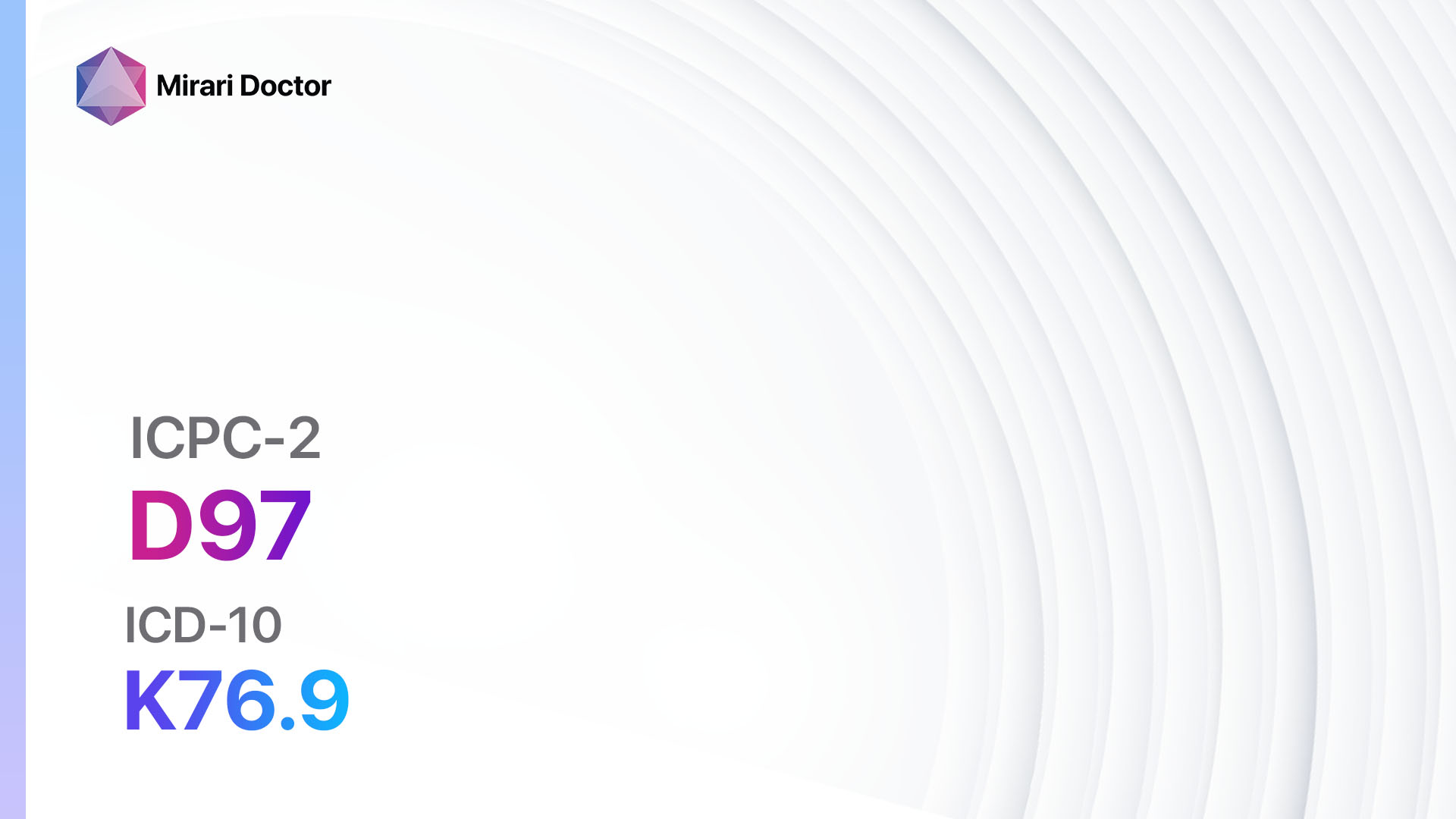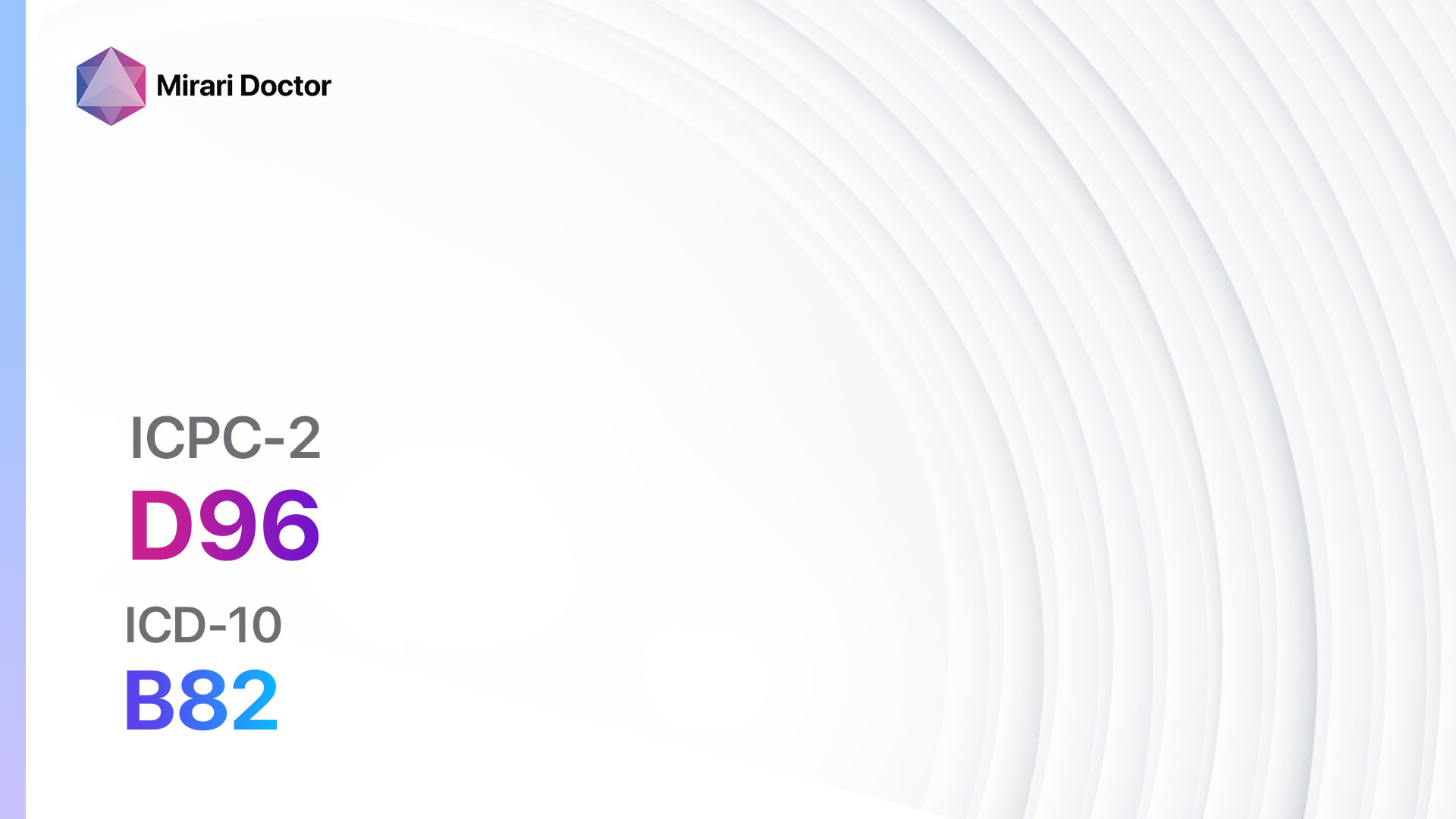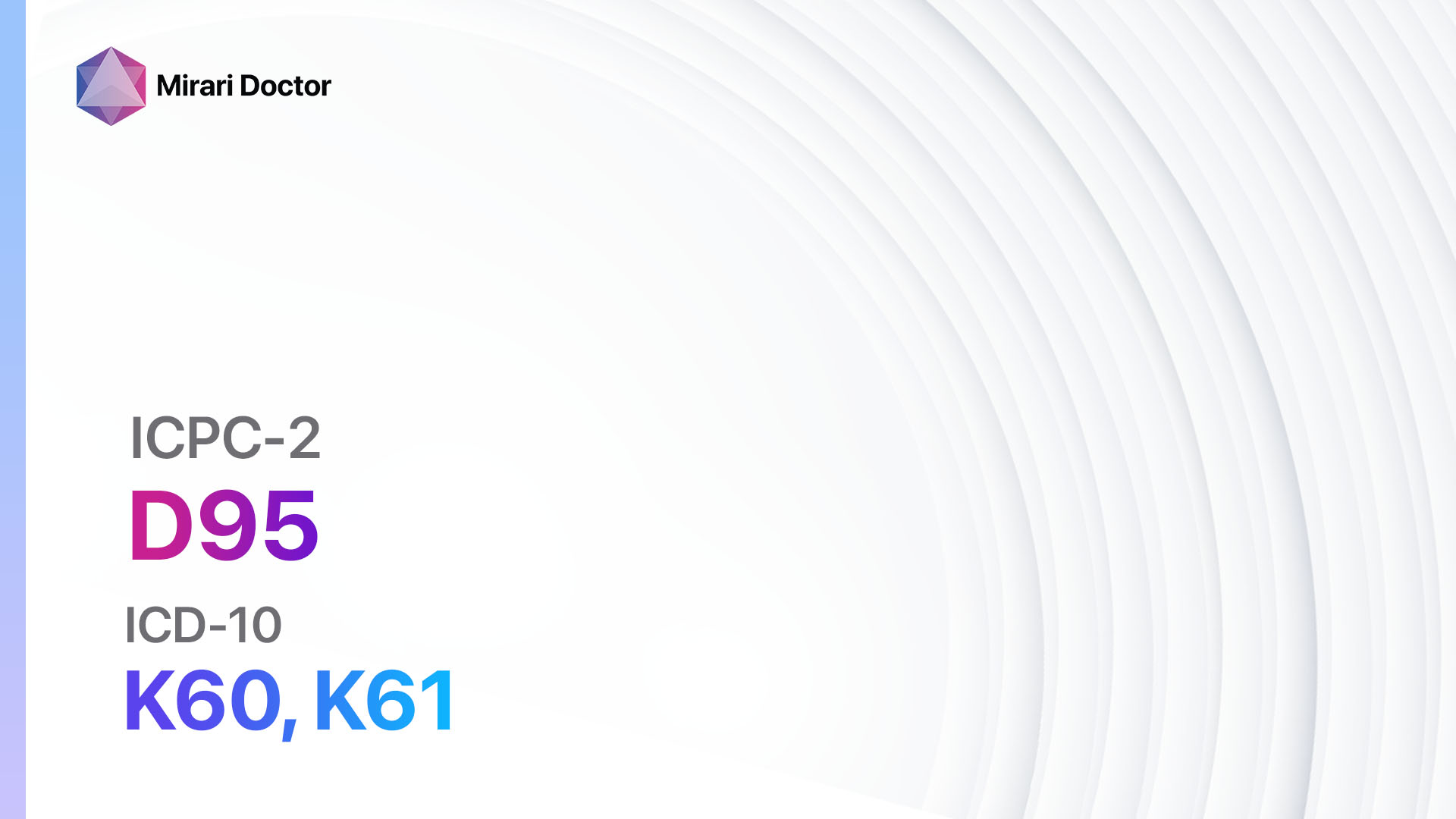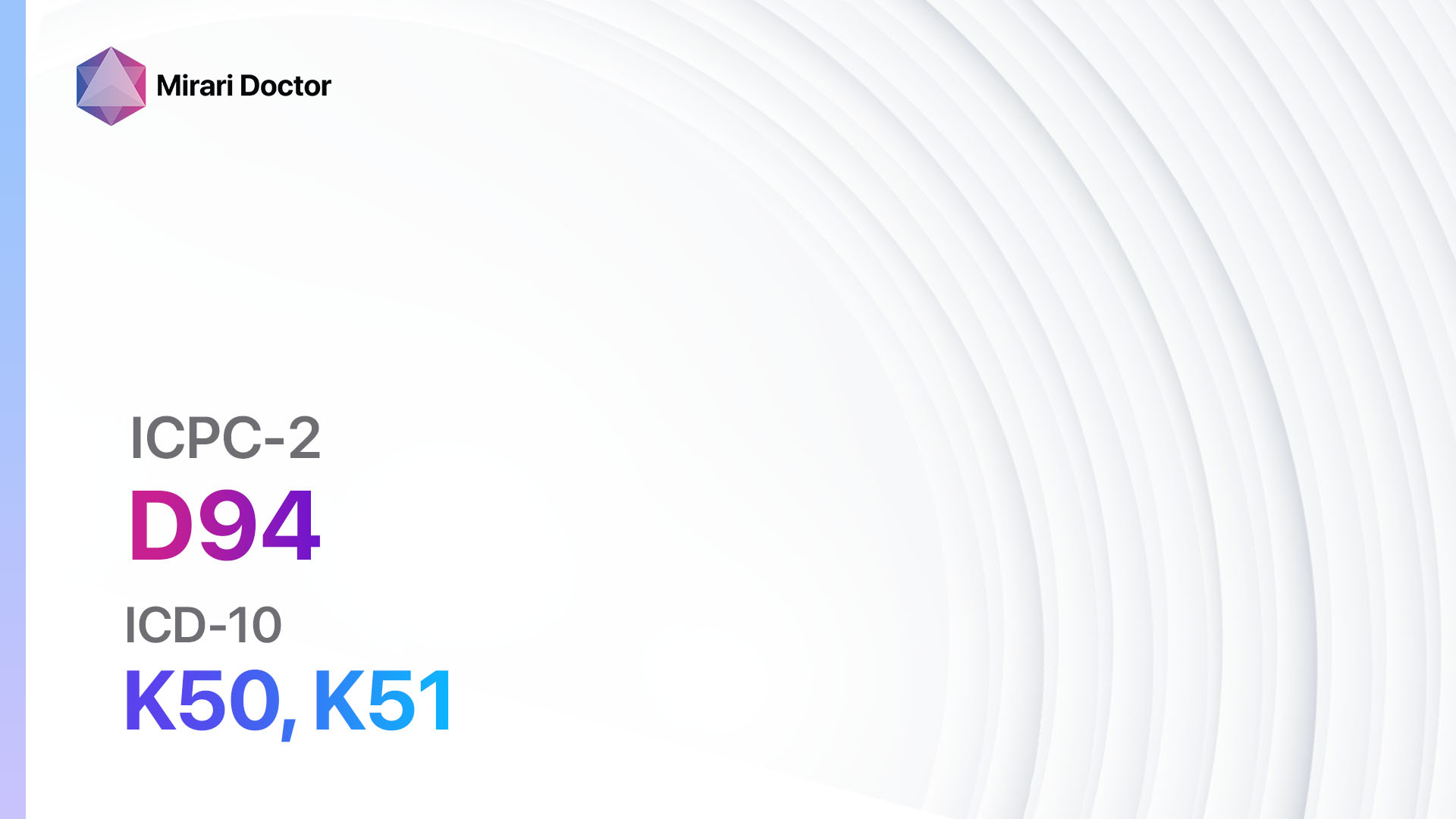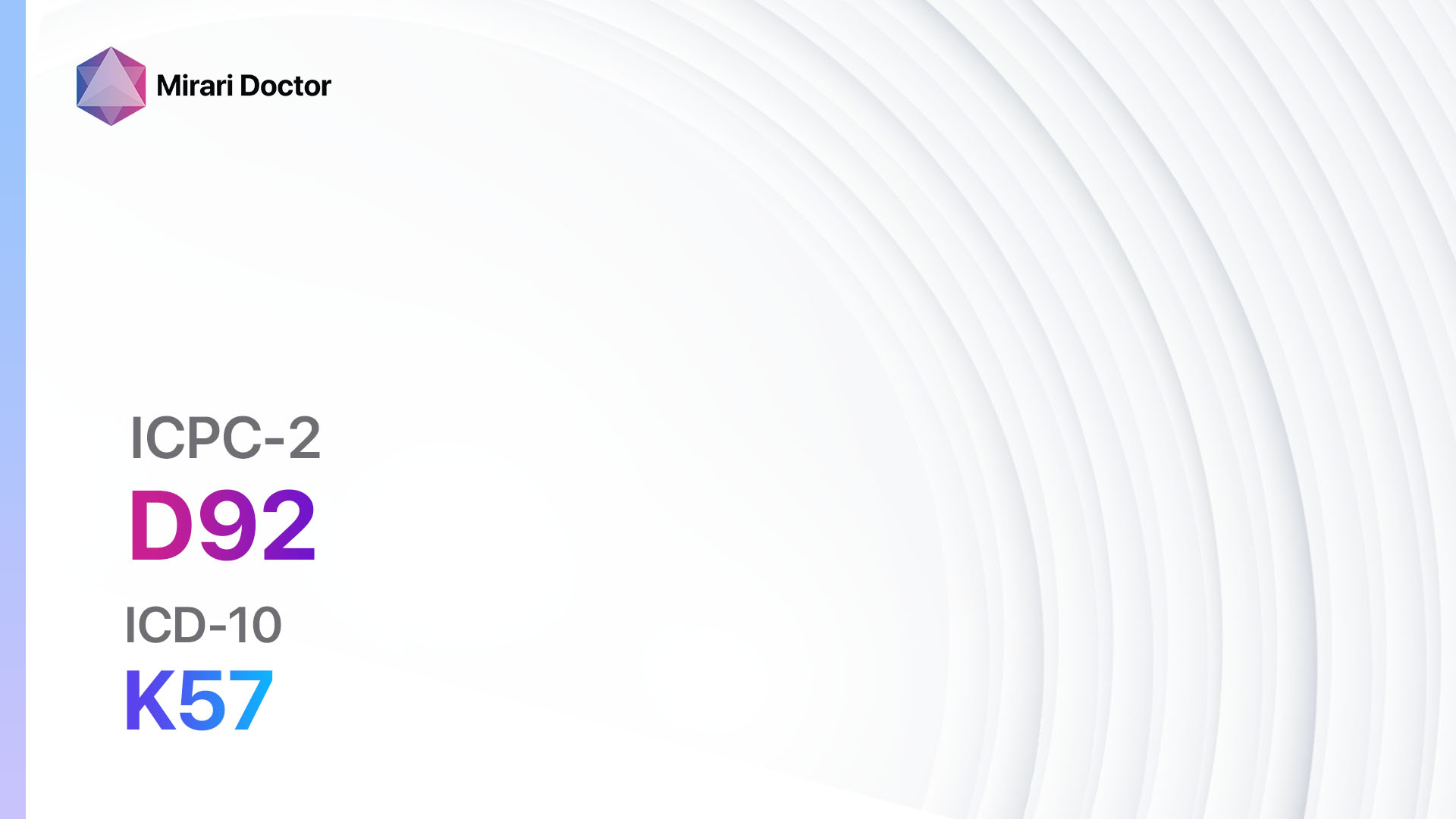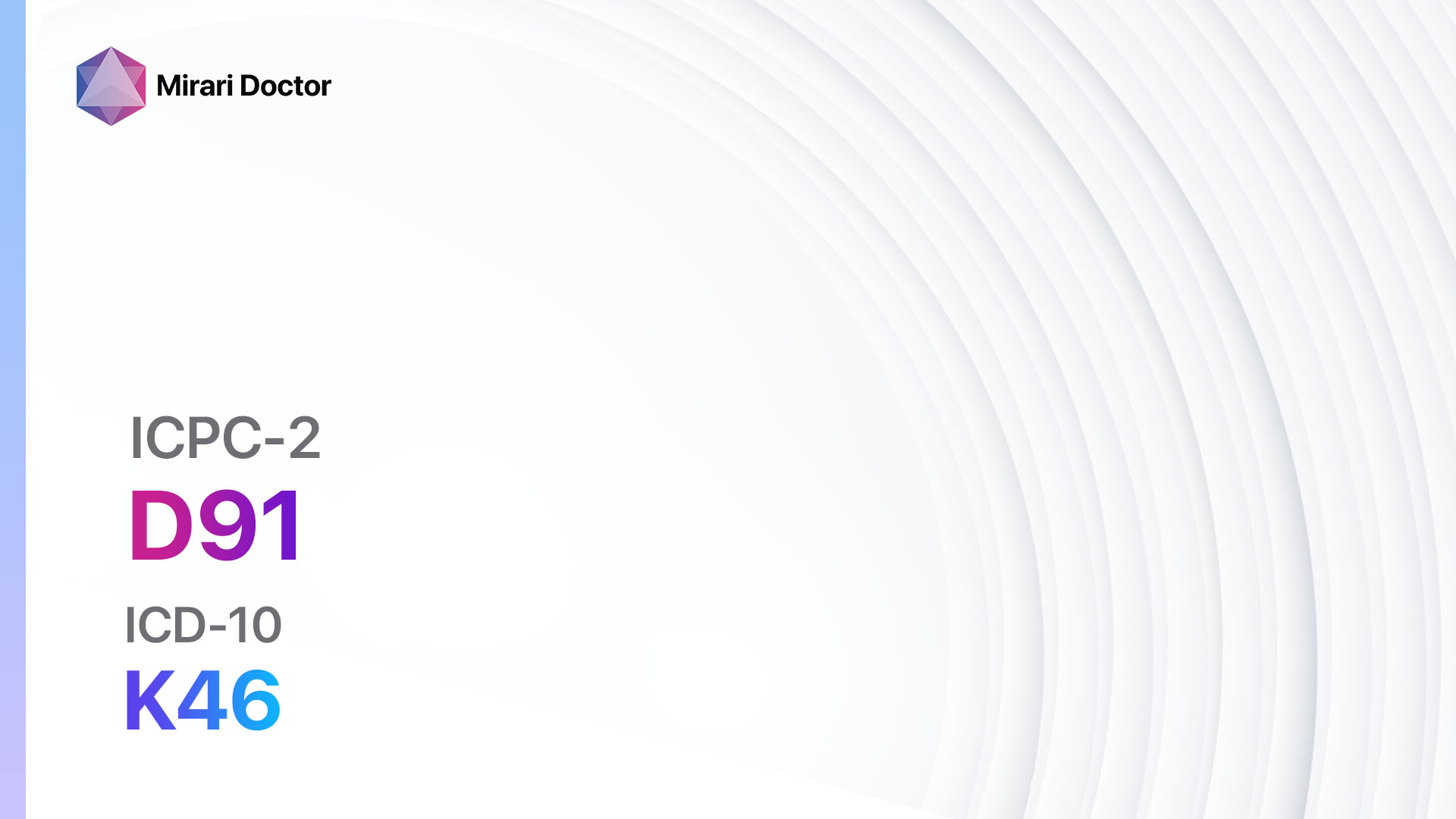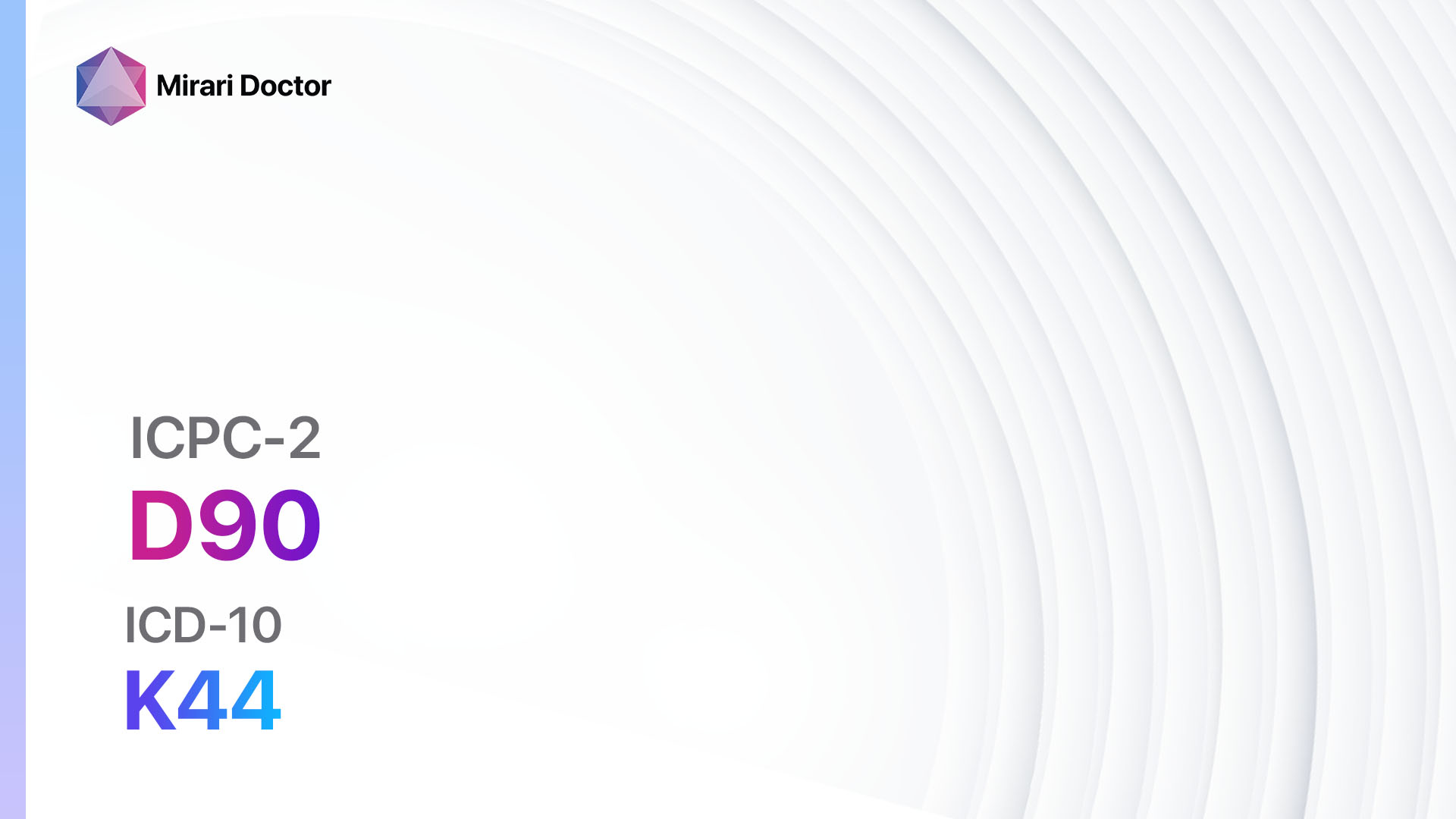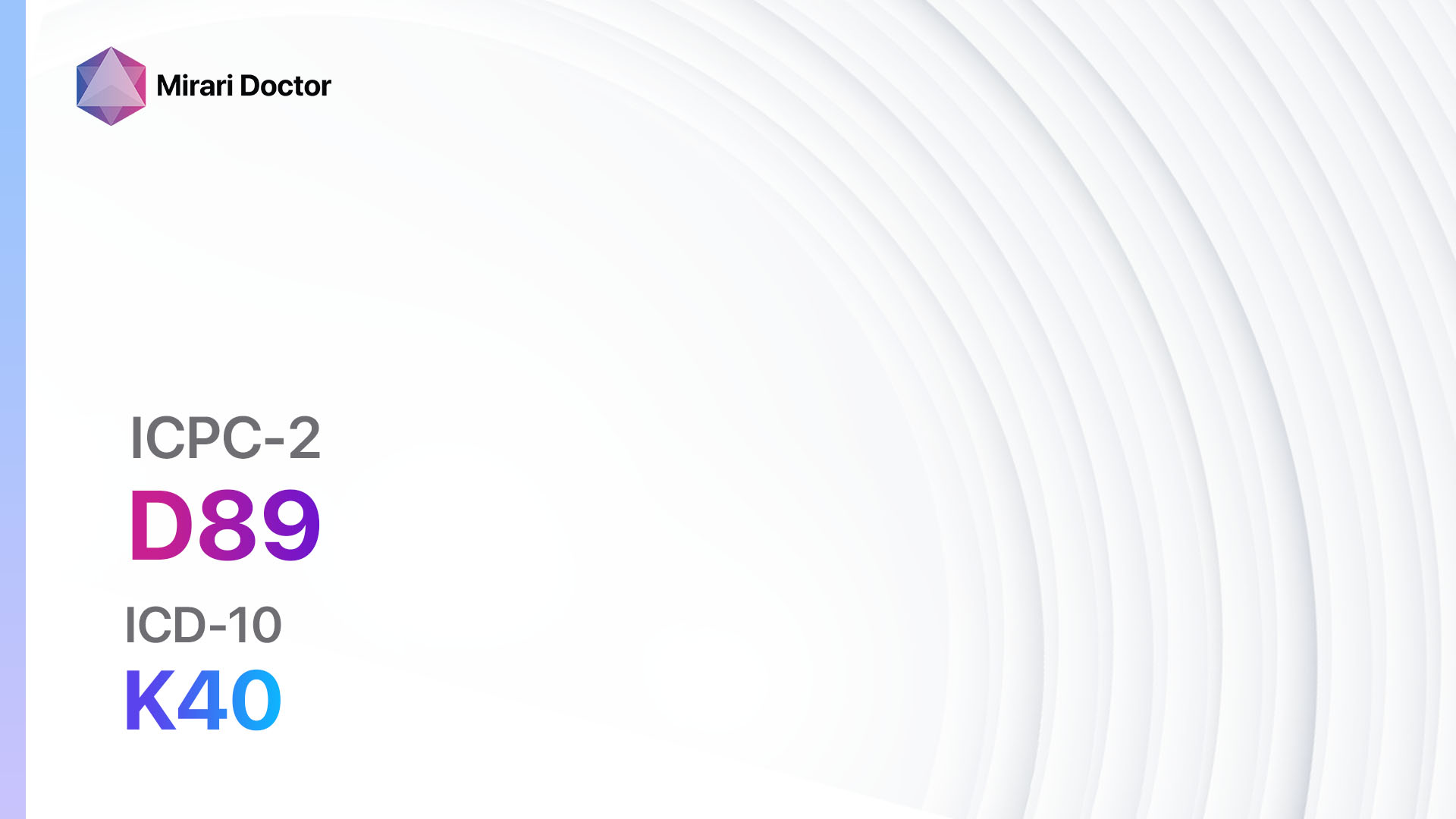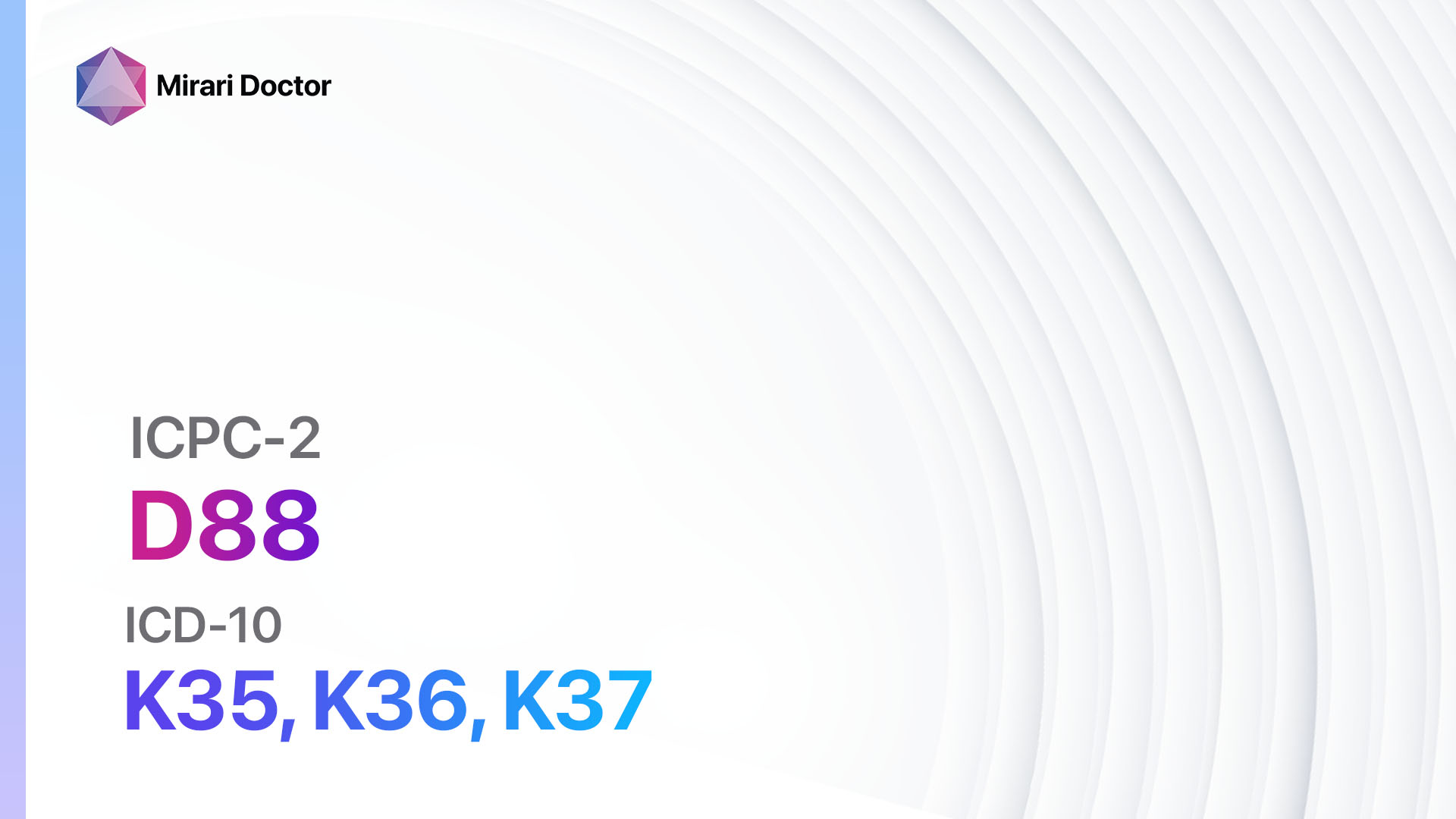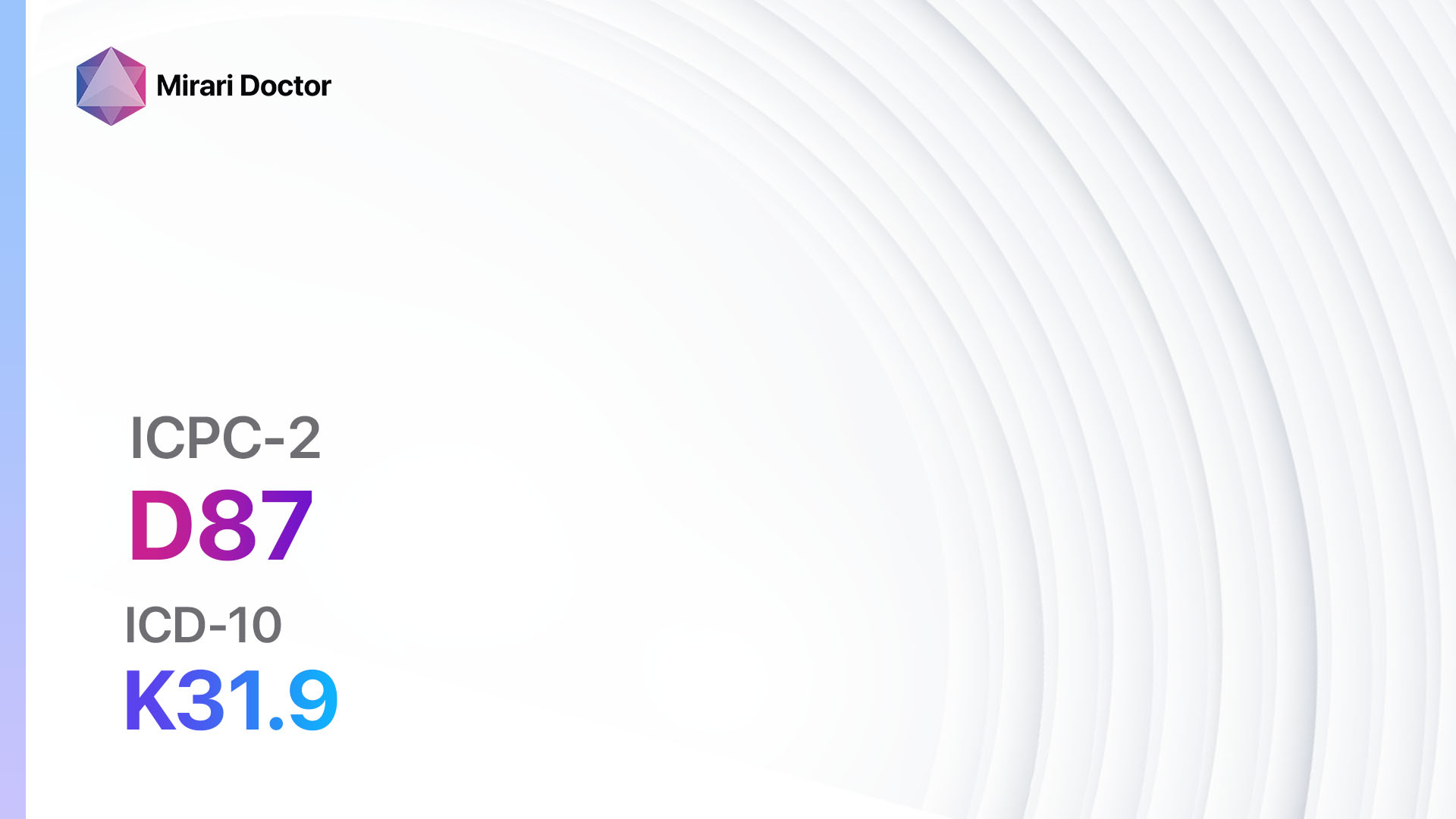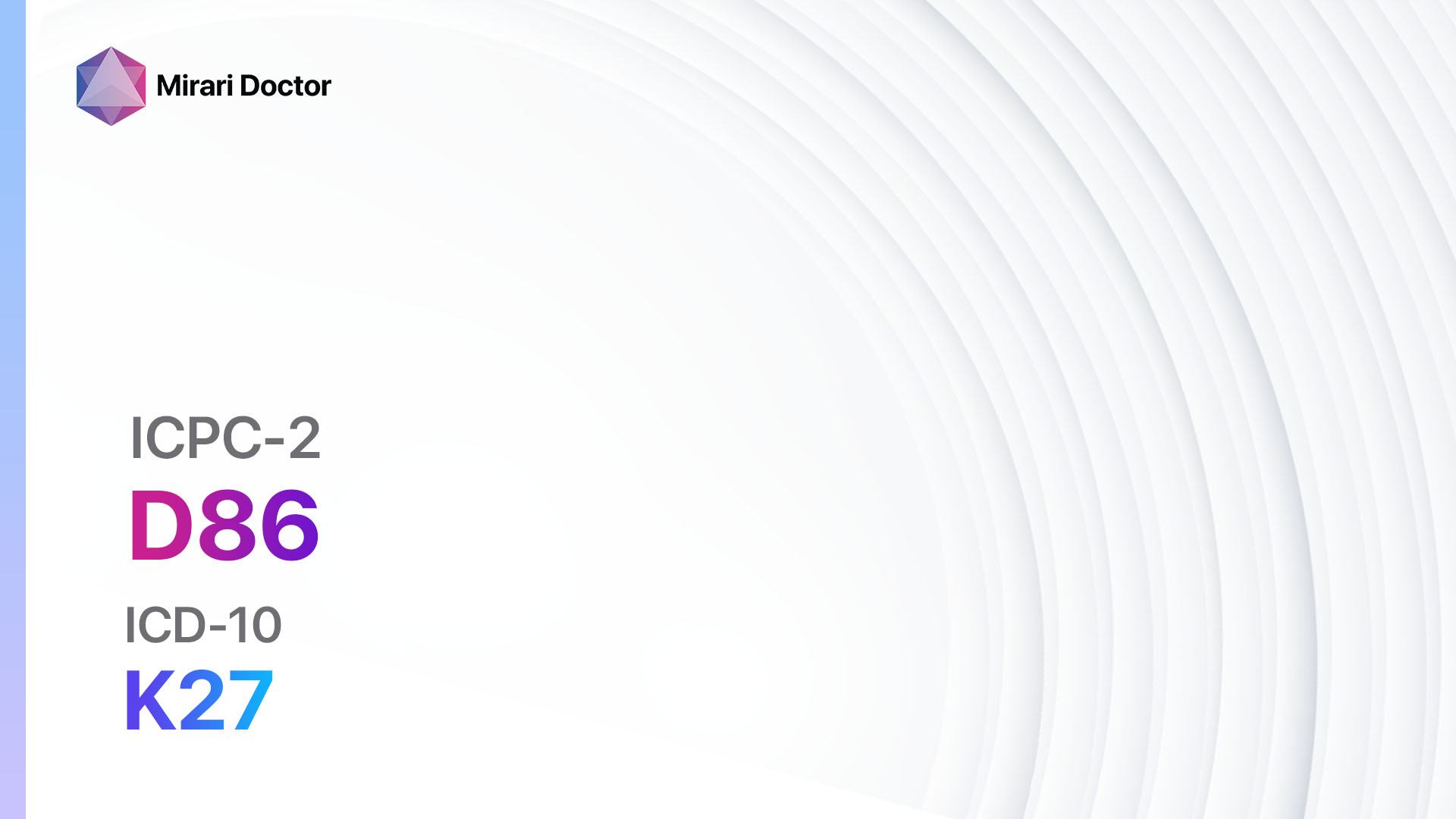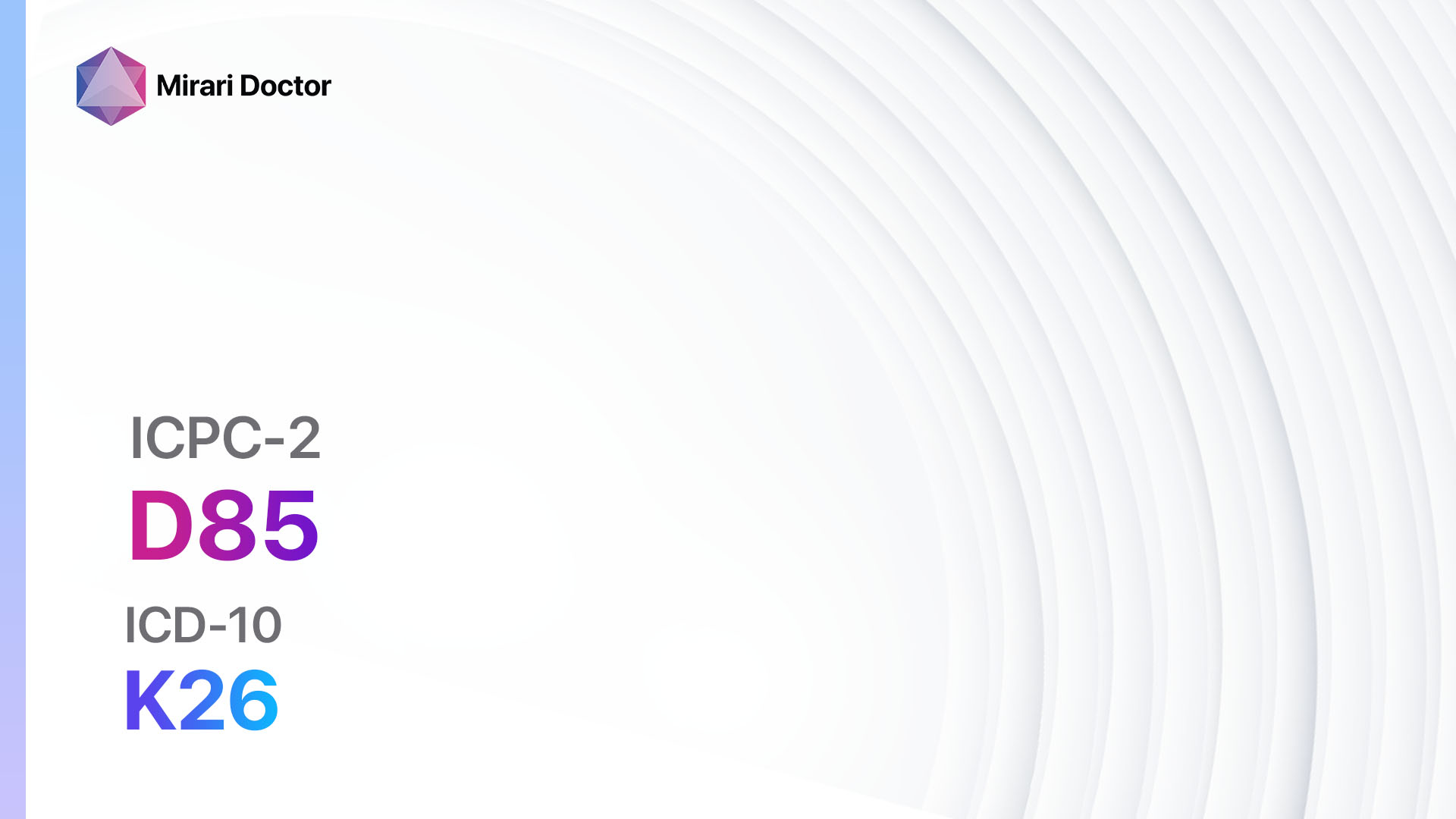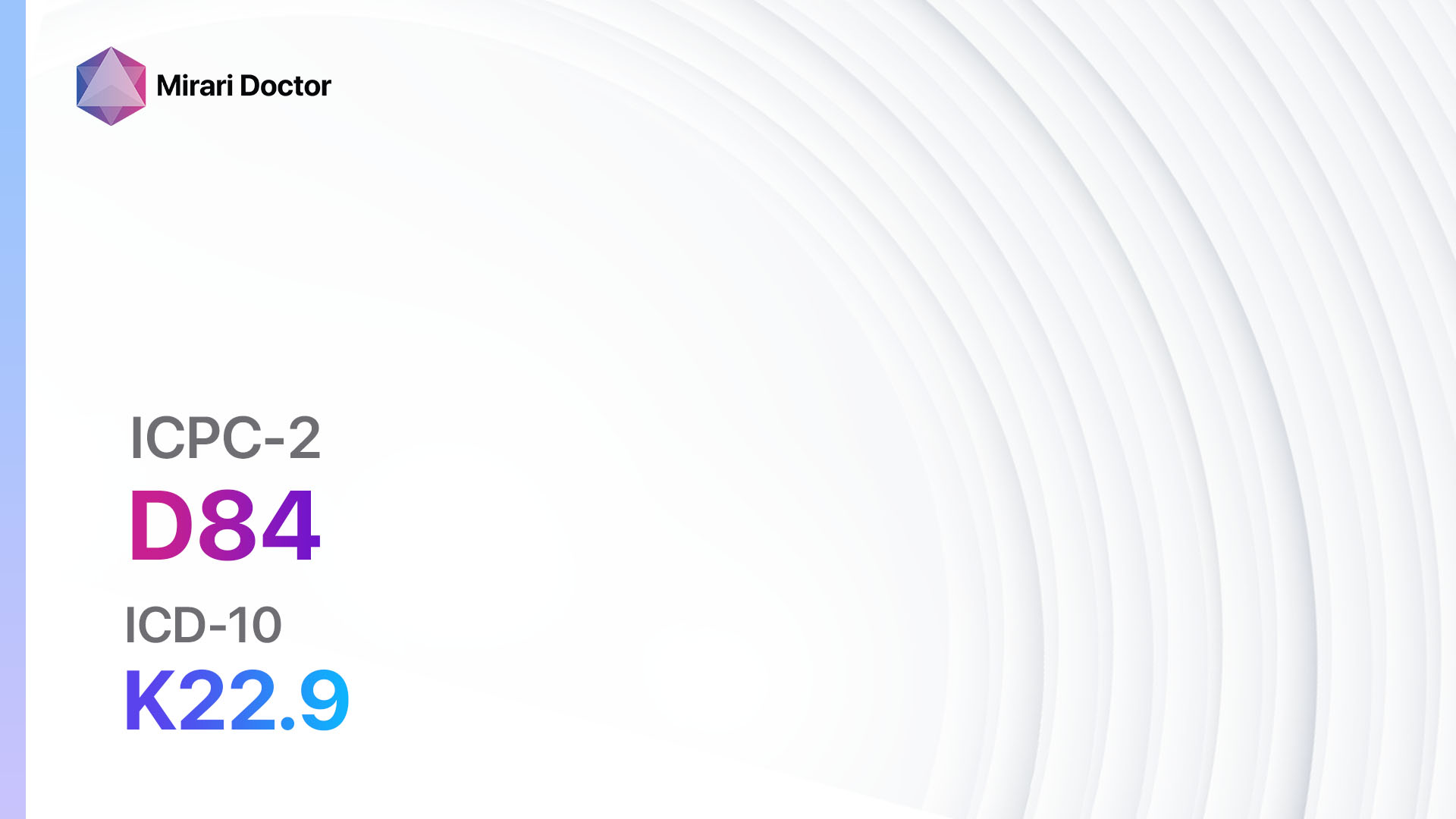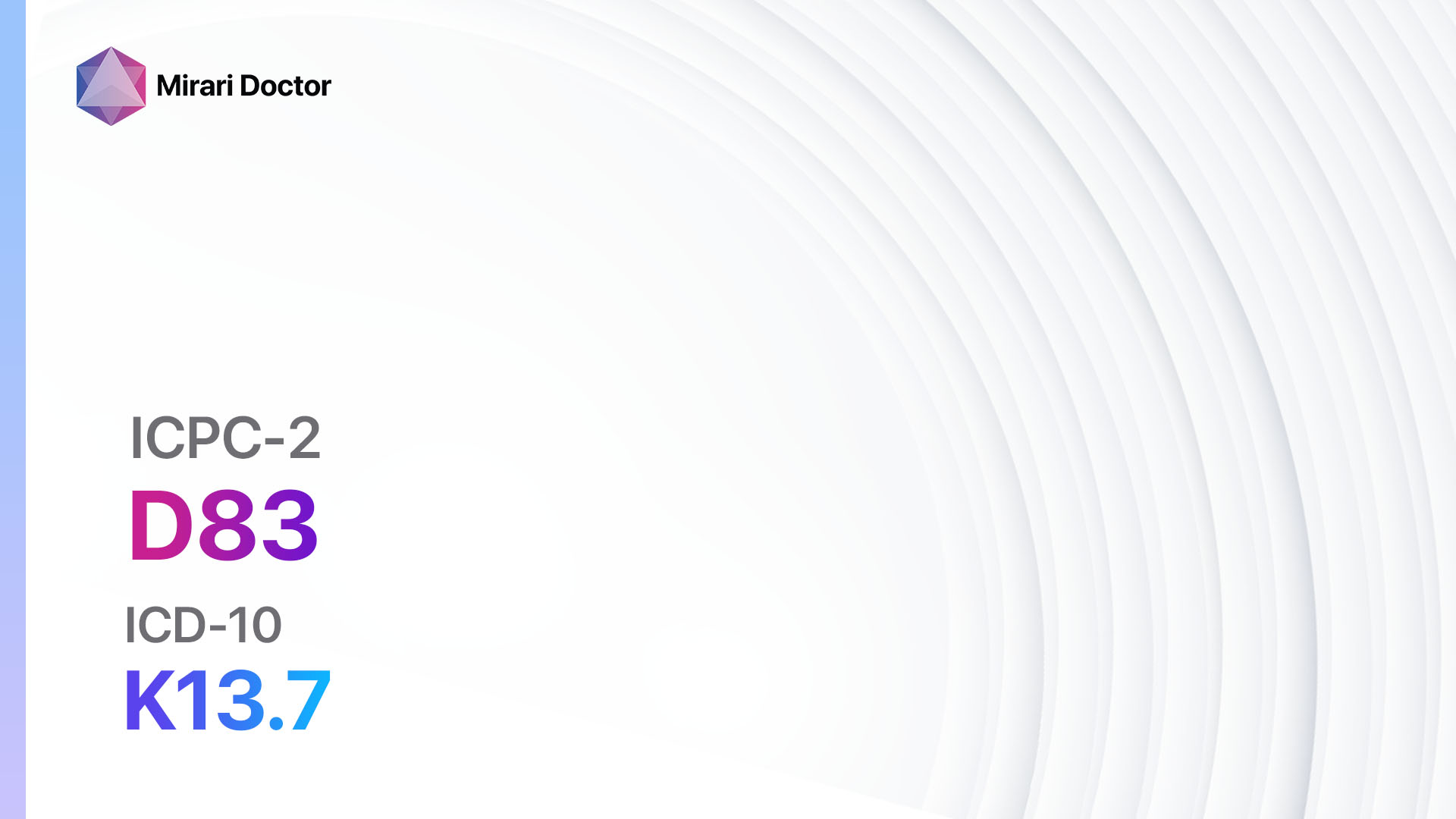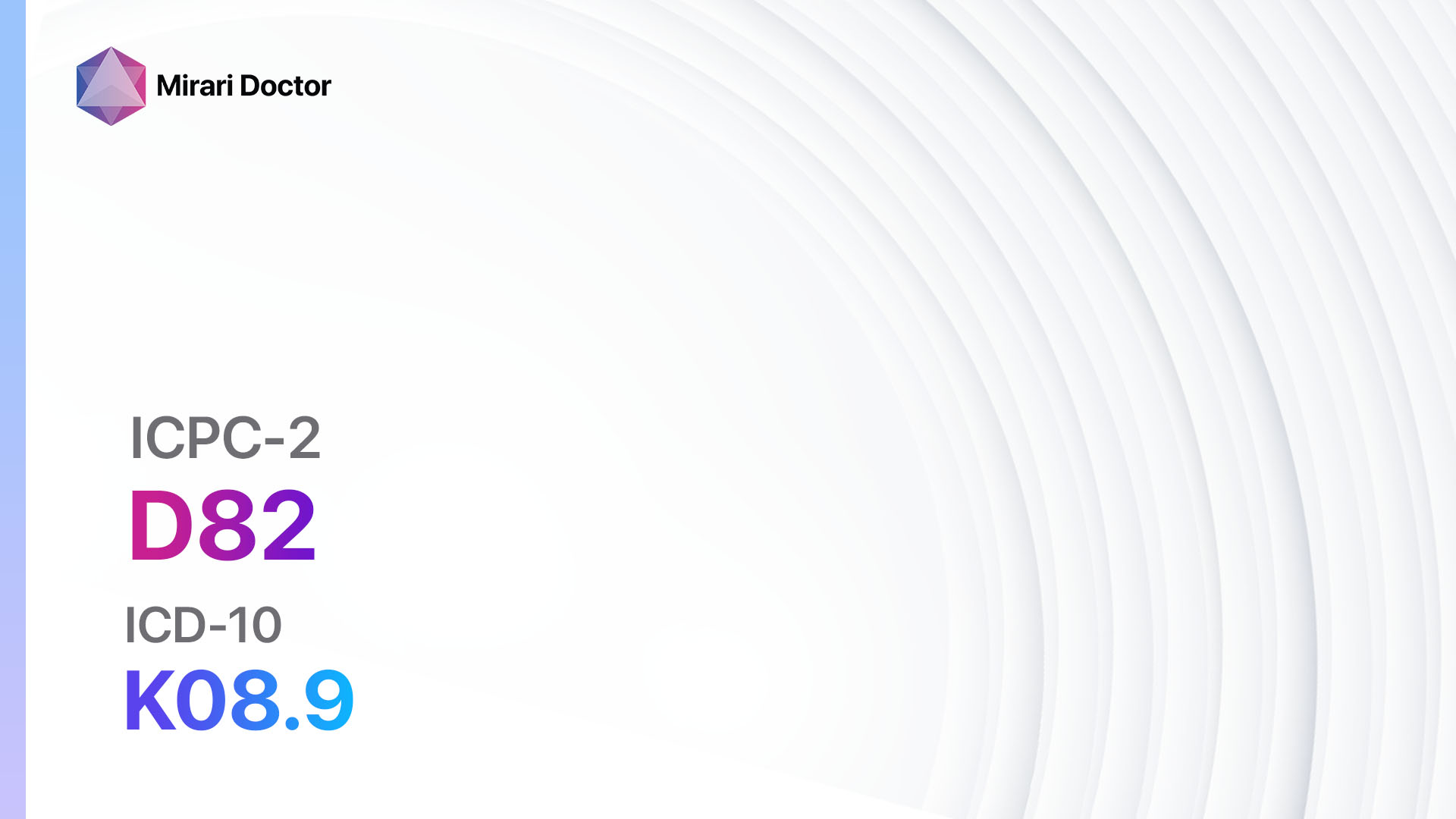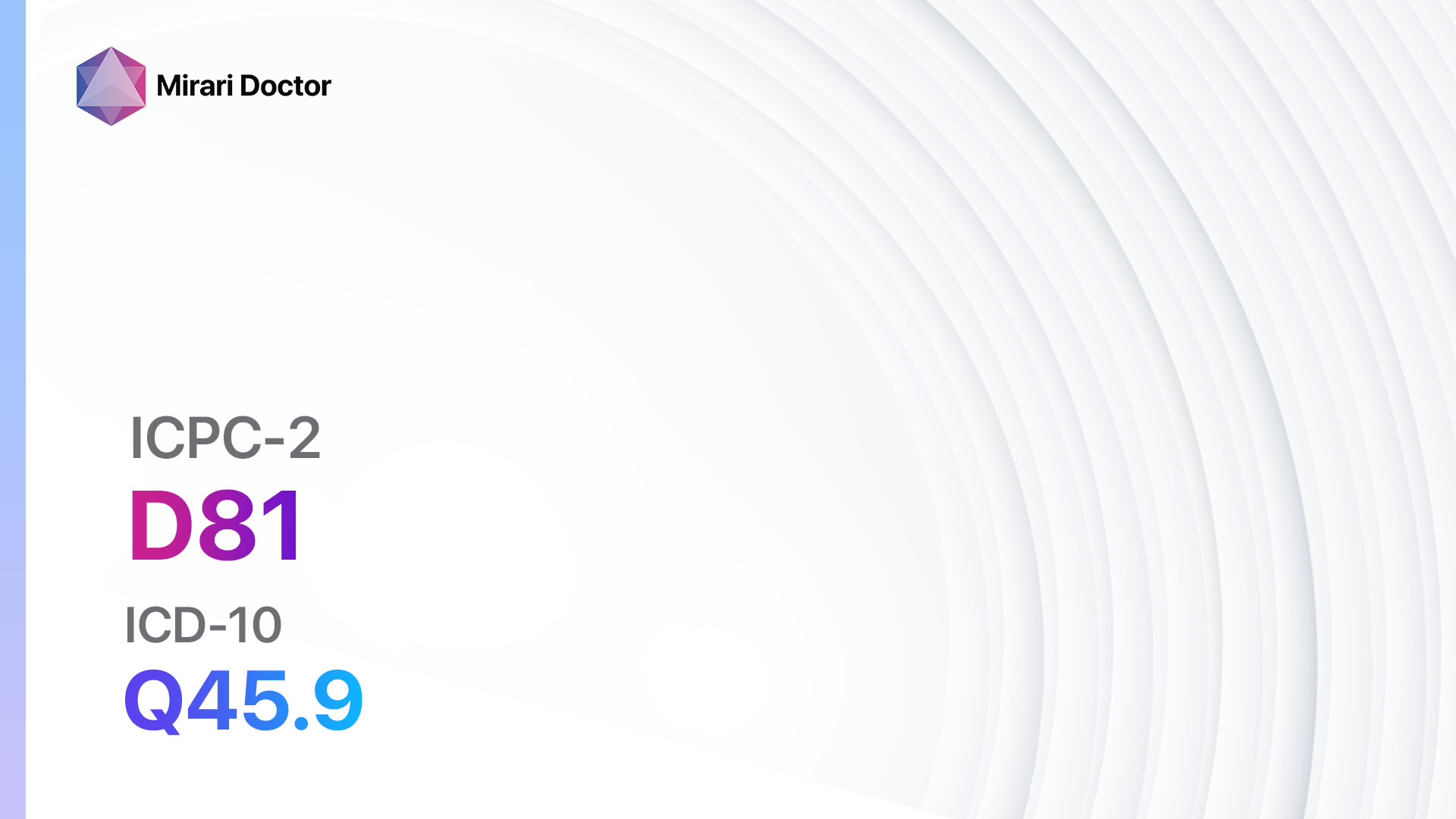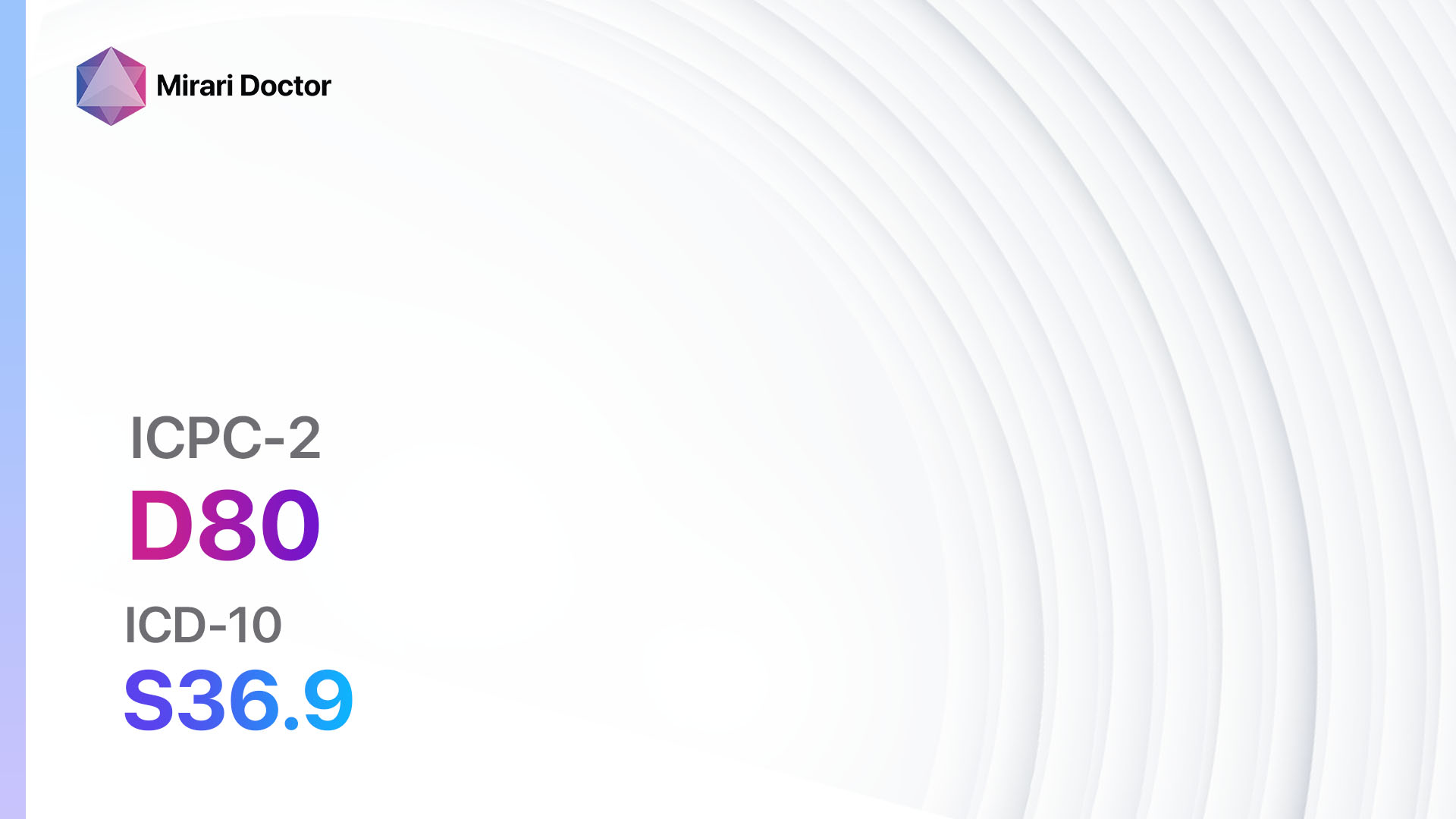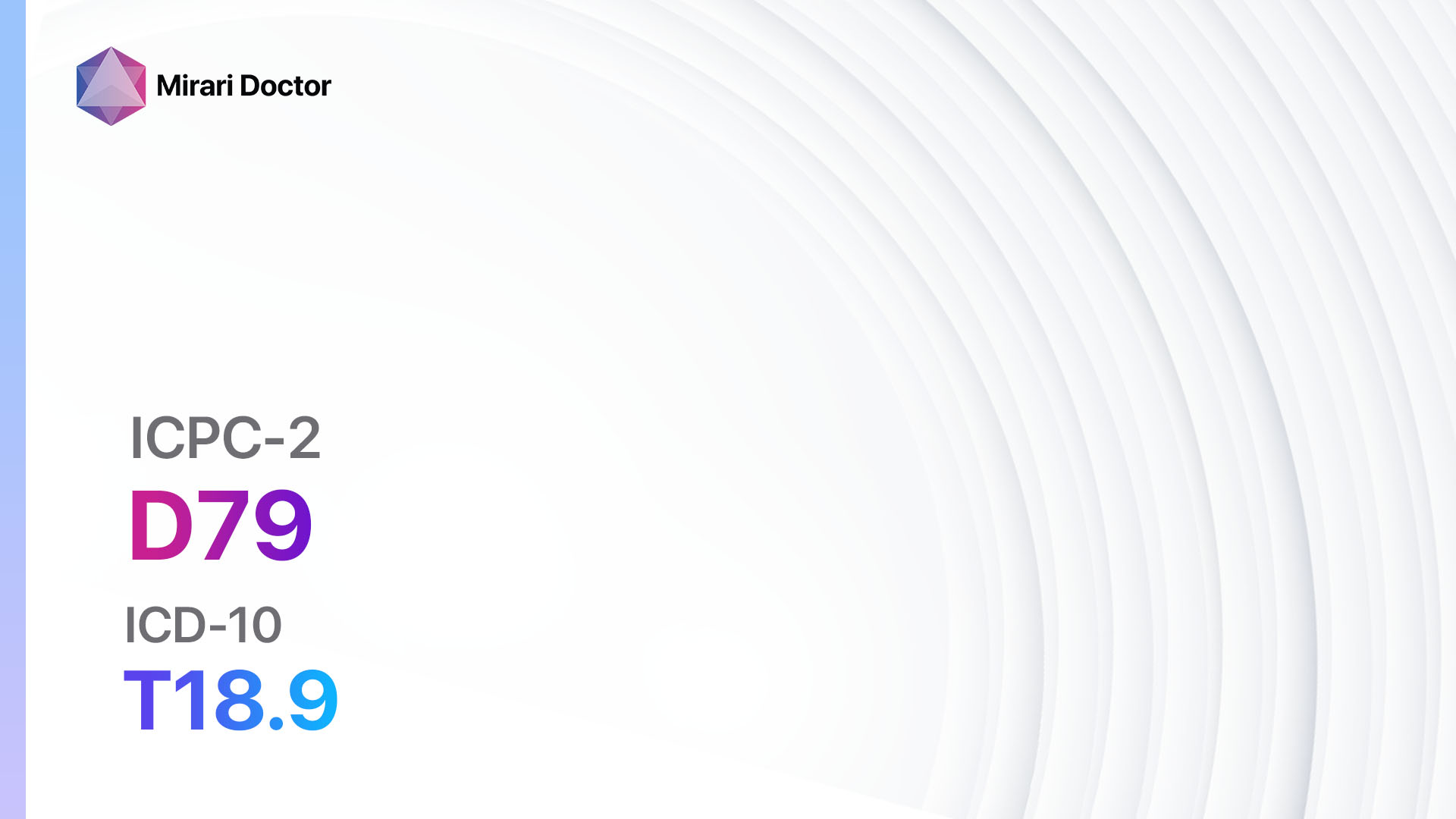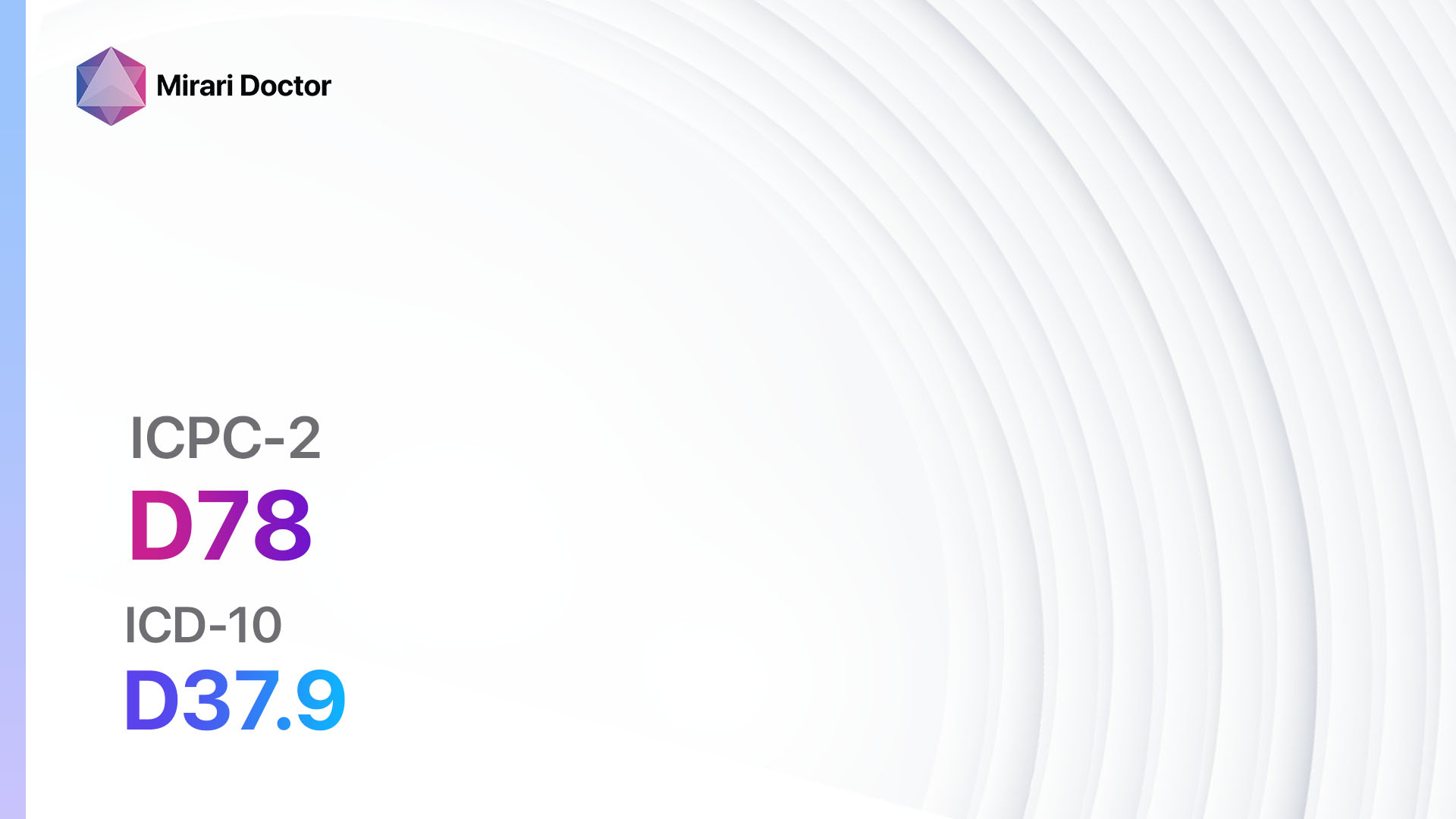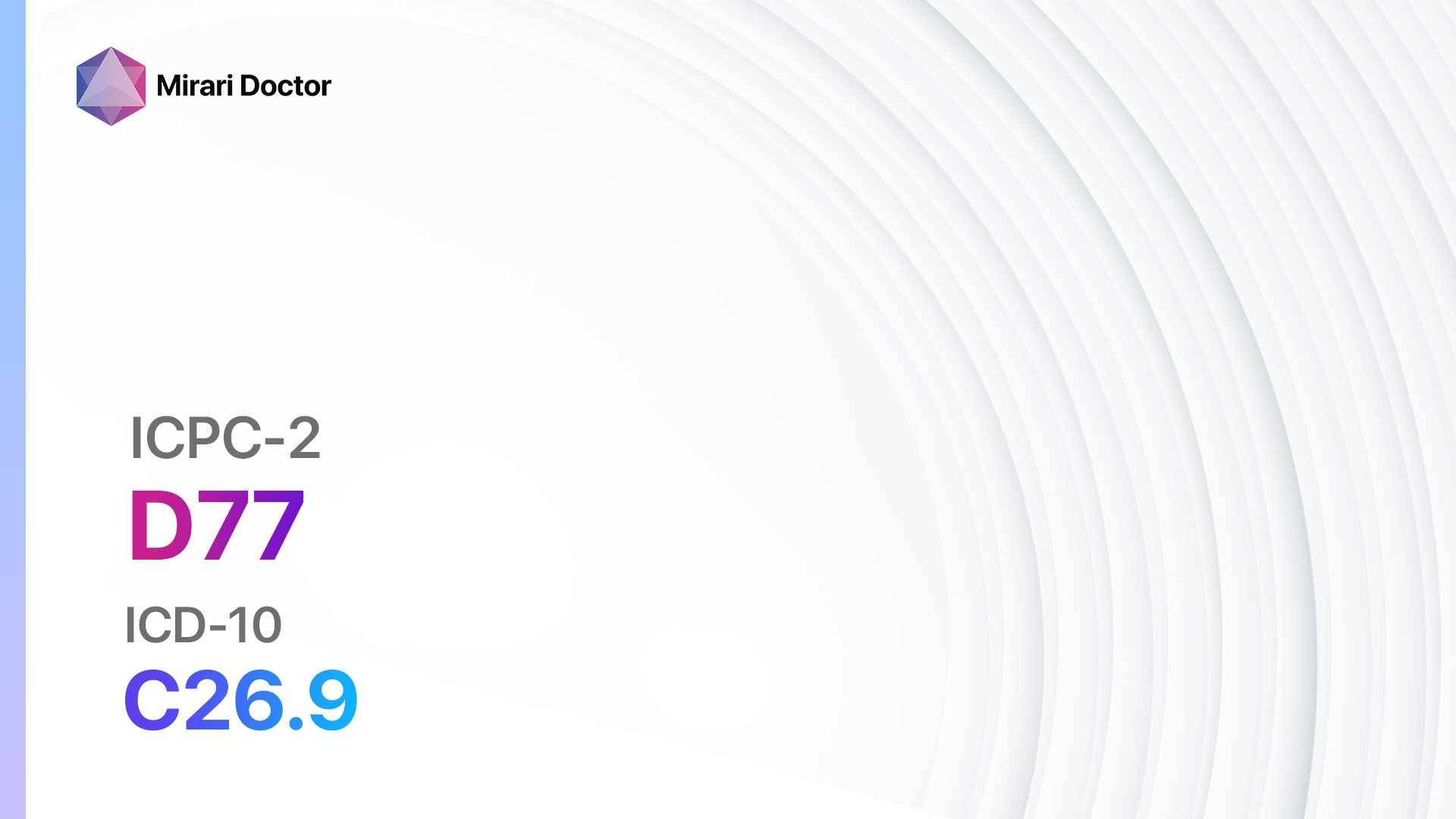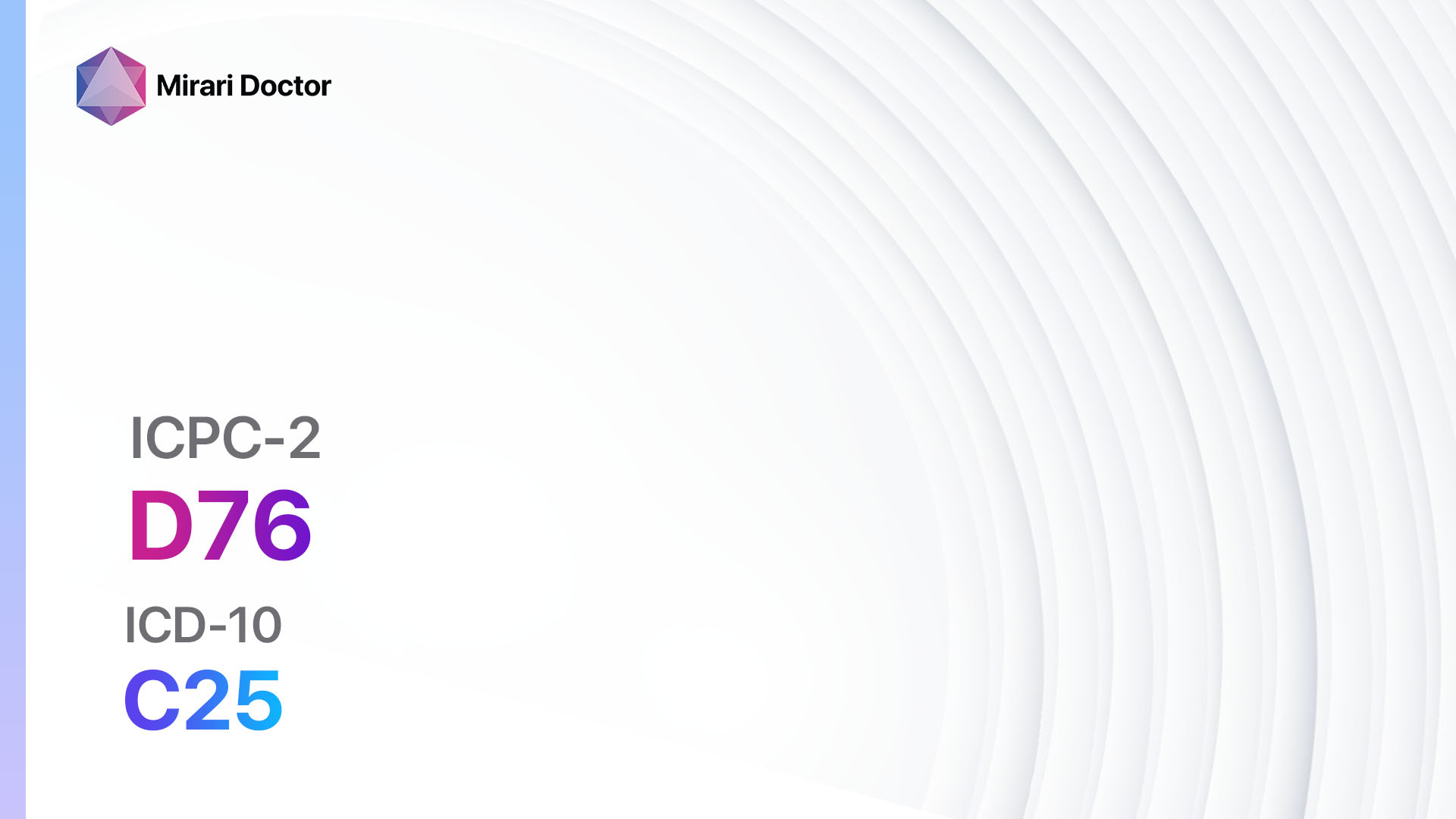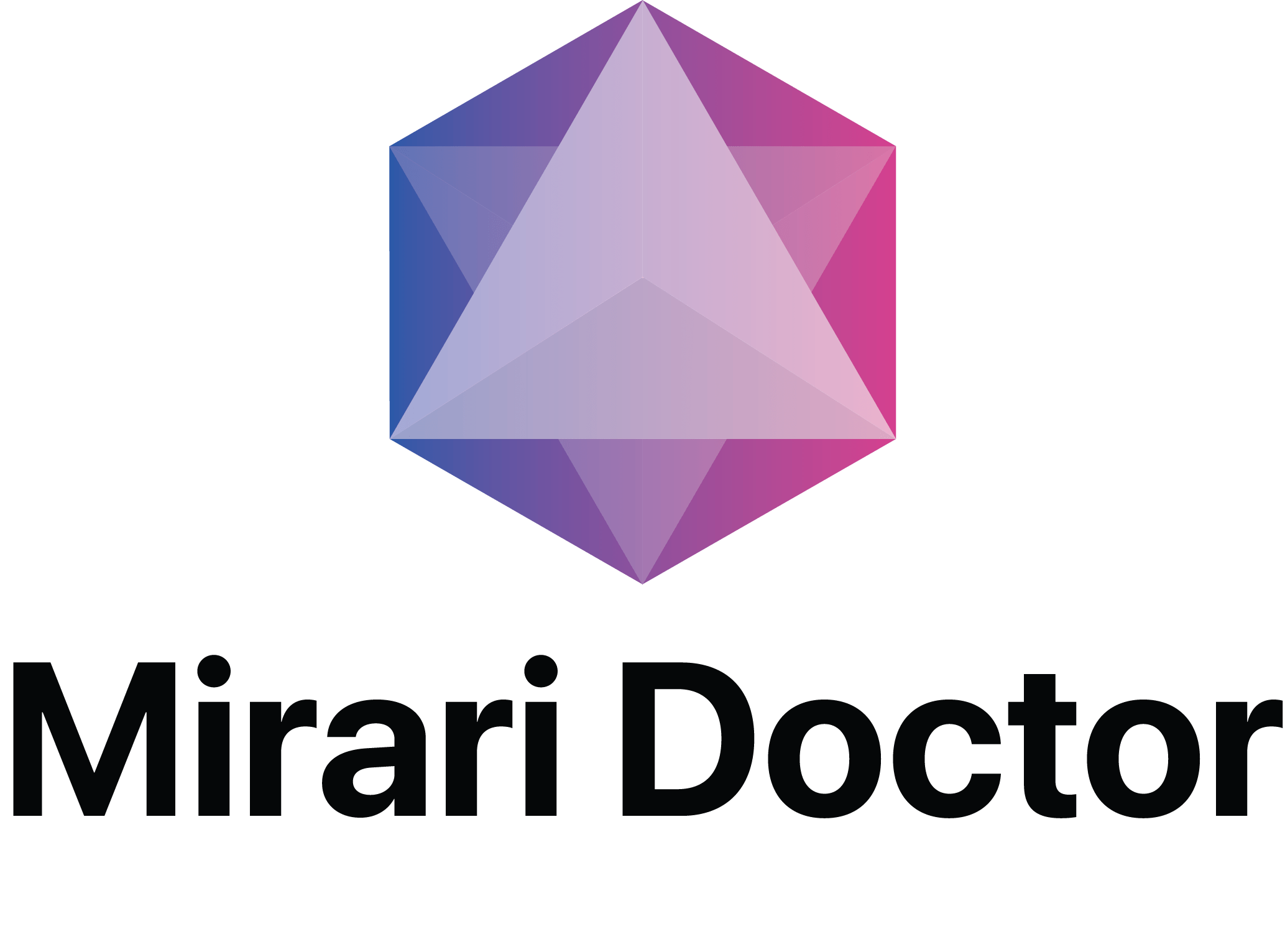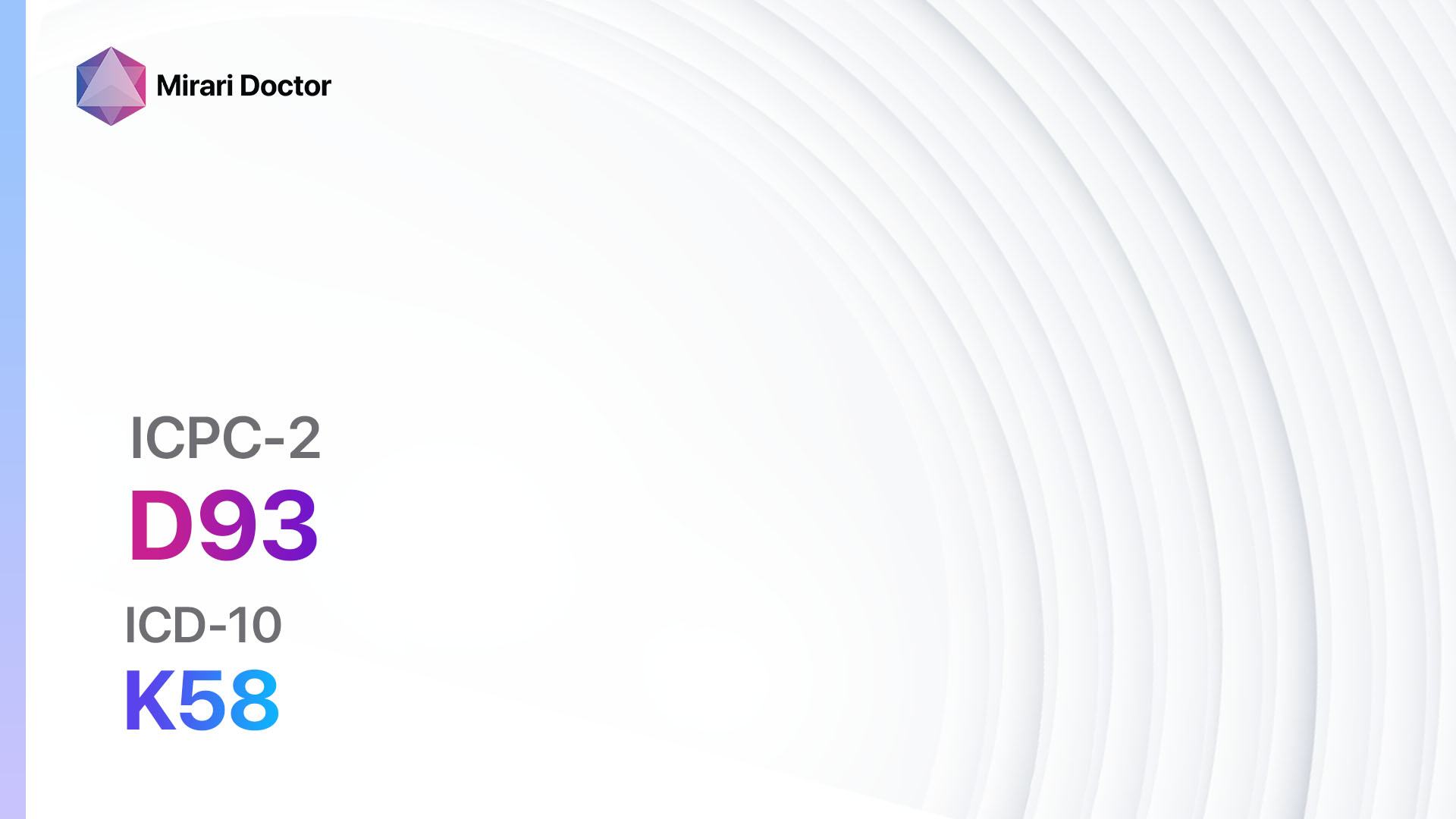
Introduction
Irritable bowel syndrome (IBS) is a common gastrointestinal disorder that affects the large intestine. It is characterized by a group of symptoms, including abdominal pain, bloating, and changes in bowel habits.[1] IBS can significantly impact a person’s quality of life and daily functioning.[2] The aim of this guide is to provide healthcare professionals with a comprehensive overview of the diagnosis and management of IBS.
Codes
Symptoms
- Abdominal pain: Cramping or discomfort in the lower abdomen that is relieved by bowel movements.[5]
- Bloating: Feeling of fullness or distention in the abdomen.[6]
- Changes in bowel habits: Alternating between diarrhea and constipation, or a change in the frequency or consistency of bowel movements.[7]
- Gas: Excessive gas production and passage.[8]
- Mucus in the stool: Presence of mucus in the stool.[9]
Causes
The exact cause of IBS is unknown, but several factors may contribute to its development:
- Abnormal gastrointestinal motility: Altered movement of the intestines can lead to symptoms of IBS.[10]
- Increased sensitivity to pain: People with IBS may have a heightened sensitivity to pain in the gastrointestinal tract.
- Intestinal inflammation: Low-grade inflammation in the intestines may contribute to the development of IBS.
- Changes in gut microbiota: Imbalances in the gut microbiota have been associated with IBS symptoms.
Diagnostic Steps
Medical History
- Gather information about the patient’s symptoms, including the frequency, duration, and severity of abdominal pain, changes in bowel habits, and associated symptoms.
- Identify any triggers or exacerbating factors, such as certain foods or stress.
- Assess the impact of symptoms on the patient’s daily life and functioning.
- Inquire about the presence of any alarm symptoms, such as unintentional weight loss, rectal bleeding, or family history of gastrointestinal disorders.
Physical Examination
- Perform a thorough physical examination, including abdominal palpation to assess for tenderness or distention.
- Check for any signs of nutritional deficiencies or other systemic abnormalities.
- Evaluate the patient’s overall well-being and mental health.
Laboratory Tests
- Complete blood count (CBC): To rule out anemia or other blood abnormalities.
- C-reactive protein (CRP): To assess for the presence of inflammation.
- Stool tests: To check for the presence of blood, infections, or parasites.
- Lactose intolerance test: To determine if lactose intolerance is contributing to symptoms.
- Gluten sensitivity test: To assess for gluten intolerance or celiac disease.
Diagnostic Imaging
- Abdominal ultrasound: To visualize the abdominal organs and rule out other conditions.
- Colonoscopy: To examine the colon and rectum for any abnormalities or signs of inflammation.
- Barium enema: A contrast dye is used to visualize the colon and rectum on X-ray images.
- CT scan: To obtain detailed images of the abdomen and pelvis.
Other Tests
- Hydrogen breath test: To assess for small intestinal bacterial overgrowth (SIBO).
- Esophageal manometry: To evaluate esophageal motility and rule out other gastrointestinal disorders.
- Gastric emptying study: To assess the rate at which the stomach empties its contents.
Follow-up and Patient Education
- Schedule regular follow-up appointments to monitor the patient’s symptoms and response to treatment.
- Provide education on dietary modifications, stress management techniques, and lifestyle changes that may help alleviate symptoms.
- Offer resources and support groups for patients to connect with others who have IBS.
Possible Interventions
Traditional Interventions
Medications:
Top 5 drugs for Irritable bowel syndrome:
- Antispasmodics (e.g., Dicyclomine, Hyoscyamine):
- Cost: Generic versions can range from $10 to $50 per month.
- Contraindications: Glaucoma, urinary retention, myasthenia gravis.
- Side effects: Dry mouth, blurred vision, constipation.
- Severe side effects: Rapid heartbeat, difficulty urinating.
- Drug interactions: Other anticholinergic medications.
- Warning: May cause drowsiness or dizziness.
- Laxatives (e.g., Polyethylene glycol, Lubiprostone):
- Cost: Generic versions can range from $10 to $30 per month.
- Contraindications: Intestinal obstruction, fecal impaction.
- Side effects: Diarrhea, abdominal cramping.
- Severe side effects: Severe diarrhea, electrolyte imbalances.
- Drug interactions: Other medications that affect bowel motility.
- Warning: Long-term use may lead to dependence.
- Antidepressants (e.g., Amitriptyline, Sertraline):
- Cost: Generic versions can range from $10 to $50 per month.
- Contraindications: Recent myocardial infarction, narrow-angle glaucoma.
- Side effects: Dry mouth, drowsiness, weight gain.
- Severe side effects: Suicidal thoughts, serotonin syndrome.
- Drug interactions: Monoamine oxidase inhibitors (MAOIs), other serotonergic medications.
- Warning: May take several weeks to see improvement.
- Probiotics (e.g., Lactobacillus acidophilus, Bifidobacterium infantis):
- Cost: Varies depending on the brand and formulation.
- Contraindications: None reported.
- Side effects: Gas, bloating, diarrhea (rare).
- Severe side effects: None reported.
- Drug interactions: None reported.
- Warning: Choose a reputable brand with evidence of efficacy.
- Peppermint oil:
- Cost: Varies depending on the brand and formulation.
- Contraindications: Gastroesophageal reflux disease (GERD), hiatal hernia.
- Side effects: Heartburn, allergic reactions (rare).
- Severe side effects: None reported.
- Drug interactions: None reported.
- Warning: Enteric-coated formulations may reduce the risk of heartburn.
Alternative Drugs:
- Rifaximin: An antibiotic that targets bacterial overgrowth in the small intestine.
- Alosetron: A medication specifically approved for women with severe diarrhea-predominant IBS.
- Eluxadoline: A medication that targets receptors in the gut to reduce abdominal pain and improve bowel habits.
- Linaclotide: A medication that increases fluid secretion in the intestines and improves bowel movements.
- Tricyclic antidepressants: Medications such as nortriptyline or desipramine may be used for pain management in IBS.
Surgical Procedures:
- Surgery is generally not recommended for the treatment of IBS. However, in rare cases where other treatments have failed and symptoms are severe, a procedure called colectomy may be considered. This involves the removal of part or all of the colon.
Alternative Interventions
- Acupuncture: May help alleviate symptoms of IBS by promoting relaxation and reducing stress. Cost: $60-$120 per session.
- Hypnotherapy: A form of therapy that uses relaxation techniques and suggestion to help manage symptoms. Cost: $75-$150 per session.
- Mind-body techniques: Techniques such as meditation, yoga, and tai chi may help reduce stress and improve overall well-being. Cost: Varies depending on the specific practice.
- Herbal supplements: Certain herbs, such as peppermint, chamomile, and ginger, may have potential benefits for relieving IBS symptoms. Cost: Varies depending on the specific supplement.
- Probiotics: Probiotic supplements or fermented foods may help restore a healthy balance of gut bacteria. Cost: Varies depending on the brand and formulation.
Lifestyle Interventions
- Dietary modifications: Elimination or reduction of trigger foods, such as high-fat foods, caffeine, alcohol, and spicy foods. Cost: Varies depending on individual food choices.
- Stress management: Techniques such as deep breathing exercises, mindfulness, and regular exercise can help reduce stress levels. Cost: Varies depending on the specific practice.
- Regular exercise: Engaging in physical activity can help improve digestion and reduce symptoms of IBS. Cost: Varies depending on individual preferences.
- Adequate sleep: Getting enough sleep can help regulate bowel movements and reduce stress. Cost: Varies depending on individual sleep habits.
- Support groups: Joining a support group or seeking counseling can provide emotional support and coping strategies. Cost: Varies depending on the availability of local resources.
It is important to note that the cost ranges provided are approximate and may vary depending on the location and availability of the interventions. It is recommended to consult with a healthcare professional for personalized treatment recommendations and cost estimates.
Mirari Cold Plasma Alternative Intervention
Understanding Mirari Cold Plasma
- Safe and Non-Invasive Treatment: Mirari Cold Plasma is a safe and non-invasive treatment option for various skin conditions. It does not require incisions, minimizing the risk of scarring, bleeding, or tissue damage.
- Efficient Extraction of Foreign Bodies: Mirari Cold Plasma facilitates the removal of foreign bodies from the skin by degrading and dissociating organic matter, allowing easier access and extraction.
- Pain Reduction and Comfort: Mirari Cold Plasma has a local analgesic effect, providing pain relief during the treatment, making it more comfortable for the patient.
- Reduced Risk of Infection: Mirari Cold Plasma has antimicrobial properties, effectively killing bacteria and reducing the risk of infection.
- Accelerated Healing and Minimal Scarring: Mirari Cold Plasma stimulates wound healing and tissue regeneration, reducing healing time and minimizing the formation of scars.
Mirari Cold Plasma Prescription
Video instructions for using Mirari Cold Plasma Device – D93 Irritable bowel syndrome (ICD-10:K58)
| Mild | Moderate | Severe |
| Mode setting: 1 (Infection) Location: 3 (Kidney, Liver & Spleen) Morning: 15 minutes, Evening: 15 minutes |
Mode setting: 1 (Infection) Location: 3 (Kidney, Liver & Spleen) Morning: 30 minutes, Lunch: 30 minutes, Evening: 30 minutes |
Mode setting: 1 (Infection) Location: 3 (Kidney, Liver & Spleen) Morning: 30 minutes, Lunch: 30 minutes, Evening: 30 minutes |
| Mode setting: 2 (Wound Healing) Location: 3 (Kidney, Liver & Spleen) Morning: 15 minutes, Evening: 15 minutes |
Mode setting: 2 (Wound Healing) Location: 3 (Kidney, Liver & Spleen) Morning: 30 minutes, Lunch: 30 minutes, Evening: 30 minutes |
Mode setting: 2 (Wound Healing) Location: 3 (Kidney, Liver & Spleen) Morning: 30 minutes, Lunch: 30 minutes, Evening: 30 minutes |
| Mode setting: 3 (Antiviral Therapy) Location: 4 (Heart, Bile & Pancreas) Morning: 15 minutes, Evening: 15 minutes |
Mode setting: 3 (Antiviral Therapy) Location: 4 (Heart, Bile & Pancreas) Morning: 30 minutes, Lunch: 30 minutes, Evening: 30 minutes |
Mode setting: 3 (Antiviral Therapy) Location: 4 (Heart, Bile & Pancreas) Morning: 30 minutes, Lunch: 30 minutes, Evening: 30 minutes |
| Mode setting: 7 (Immunotherapy) Location: 1 (Sacrum) Morning: 15 minutes, Evening: 15 minutes |
Mode setting: 7 (Immunotherapy) Location: 1 (Sacrum) Morning: 30 minutes, Lunch: 30 minutes, Evening: 30 minutes |
Mode setting: 7 (Immunotherapy) Location: 1 (Sacrum) Morning: 30 minutes, Lunch: 30 minutes, Evening: 30 minutes |
| Total Morning: 60 minutes approx. $10 USD, Evening: 60 minutes approx. $10 USD |
Total Morning: 120 minutes approx. $20 USD, Lunch: 120 minutes approx. $20 USD, Evening: 120 minutes approx. $20 USD, |
Total Morning: 120 minutes approx. $20 USD, Lunch: 120 minutes approx. $20 USD, Evening: 120 minutes approx. $20 USD, |
| Usual treatment for 7-60 days approx. $140 USD – $1200 USD | Usual treatment for 6-8 weeks approx. $2,520 USD – $3,360 USD |
Usual treatment for 3-6 months approx. $5,400 USD – $10,800 USD
|
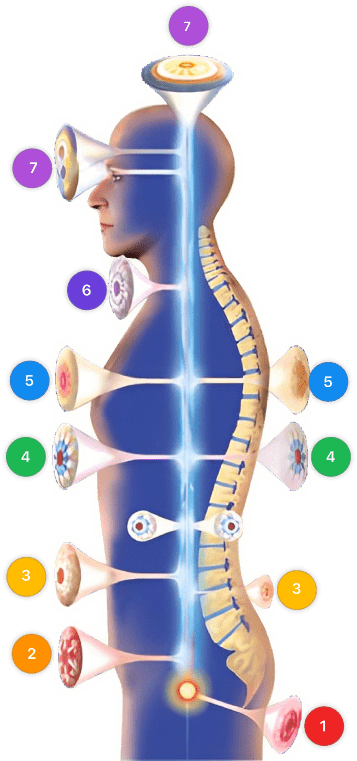 |
|
Use the Mirari Cold Plasma device to treat Irritable bowel syndrome effectively.
WARNING: MIRARI COLD PLASMA IS DESIGNED FOR THE HUMAN BODY WITHOUT ANY ARTIFICIAL OR THIRD PARTY PRODUCTS. USE OF OTHER PRODUCTS IN COMBINATION WITH MIRARI COLD PLASMA MAY CAUSE UNPREDICTABLE EFFECTS, HARM OR INJURY. PLEASE CONSULT A MEDICAL PROFESSIONAL BEFORE COMBINING ANY OTHER PRODUCTS WITH USE OF MIRARI.
Step 1: Cleanse the Skin
- Start by cleaning the affected area of the skin with a gentle cleanser or mild soap and water. Gently pat the area dry with a clean towel.
Step 2: Prepare the Mirari Cold Plasma device
- Ensure that the Mirari Cold Plasma device is fully charged or has fresh batteries as per the manufacturer’s instructions. Make sure the device is clean and in good working condition.
- Switch on the Mirari device using the power button or by following the specific instructions provided with the device.
- Some Mirari devices may have adjustable settings for intensity or treatment duration. Follow the manufacturer’s instructions to select the appropriate settings based on your needs and the recommended guidelines.
Step 3: Apply the Device
- Place the Mirari device in direct contact with the affected area of the skin. Gently glide or hold the device over the skin surface, ensuring even coverage of the area experiencing.
- Slowly move the Mirari device in a circular motion or follow a specific pattern as indicated in the user manual. This helps ensure thorough treatment coverage.
Step 4: Monitor and Assess:
- Keep track of your progress and evaluate the effectiveness of the Mirari device in managing your Irritable bowel syndrome. If you have any concerns or notice any adverse reactions, consult with your health care professional.
Note
This guide is for informational purposes only and should not replace the advice of a medical professional. Always consult with your healthcare provider or a qualified medical professional for personal advice, diagnosis, or treatment. Do not solely rely on the information presented here for decisions about your health. Use of this information is at your own risk. The authors of this guide, nor any associated entities or platforms, are not responsible for any potential adverse effects or outcomes based on the content.
Mirari Cold Plasma System Disclaimer
- Purpose: The Mirari Cold Plasma System is a Class 2 medical device designed for use by trained healthcare professionals. It is registered for use in Thailand and Vietnam. It is not intended for use outside of these locations.
- Informational Use: The content and information provided with the device are for educational and informational purposes only. They are not a substitute for professional medical advice or care.
- Variable Outcomes: While the device is approved for specific uses, individual outcomes can differ. We do not assert or guarantee specific medical outcomes.
- Consultation: Prior to utilizing the device or making decisions based on its content, it is essential to consult with a Certified Mirari Tele-Therapist and your medical healthcare provider regarding specific protocols.
- Liability: By using this device, users are acknowledging and accepting all potential risks. Neither the manufacturer nor the distributor will be held accountable for any adverse reactions, injuries, or damages stemming from its use.
- Geographical Availability: This device has received approval for designated purposes by the Thai and Vietnam FDA. As of now, outside of Thailand and Vietnam, the Mirari Cold Plasma System is not available for purchase or use.
References
- Lacy, B. E., Mearin, F., Chang, L., Chey, W. D., Lembo, A. J., Simren, M., & Spiller, R. (2016). Bowel disorders. Gastroenterology, 150(6), 1393-1407.
- Drossman, D. A. (2016). Functional gastrointestinal disorders: history, pathophysiology, clinical features, and Rome IV. Gastroenterology, 150(6), 1262-1279.
- ICPC-2 – English. (n.d.). Retrieved from https://www.gesy.org.cy/el-gr/annualreport/icpc-2-english1-10.pdf
- ICD-10 code: K58 Irritable bowel syndrome – gesund.bund.de. (n.d.). Retrieved from https://gesund.bund.de/en/icd-code-search/k58
- Irritable bowel syndrome – Symptoms and causes. (2021, June 17). Mayo Clinic. Retrieved from https://www.mayoclinic.org/diseases-conditions/irritable-bowel-syndrome/symptoms-causes/syc-20360016
- Enck, P., Aziz, Q., Barbara, G., Farmer, A. D., Fukudo, S., Mayer, E. A., … & Spiller, R. C. (2016). Irritable bowel syndrome. Nature reviews Disease primers, 2(1), 1-24.
- Diagnosis and management of IBS in adults. (2012, September 1). American Family Physician. Retrieved from https://www.aafp.org/pubs/afp/issues/2012/0901/p419.html
- Irritable bowel syndrome – Diagnosis and treatment – Mayo Clinic. (n.d.). Retrieved from https://www.mayoclinic.org/diseases-conditions/irritable-bowel-syndrome/diagnosis-treatment/drc-20360064
- Chong, Pei Pei ; Chin, Voon Kin ; Looi, Chung Yeng ; Wong, Won Fen ; Madhavan, Priya ; Yong, Voon Chen (2019). The Microbiome and Irritable Bowel Syndrome – A Review on the Pathophysiology, Current Research and Future Therapy. DOI: 10.3389/fmicb.2019.01136
- Zsila, Ferenc (2013). Subdomain IB Is the Third Major Drug Binding Region of Human Serum Albumin: Toward the Three-Sites Model. DOI: 10.1021/mp400027q
Related articles
Made in USA
